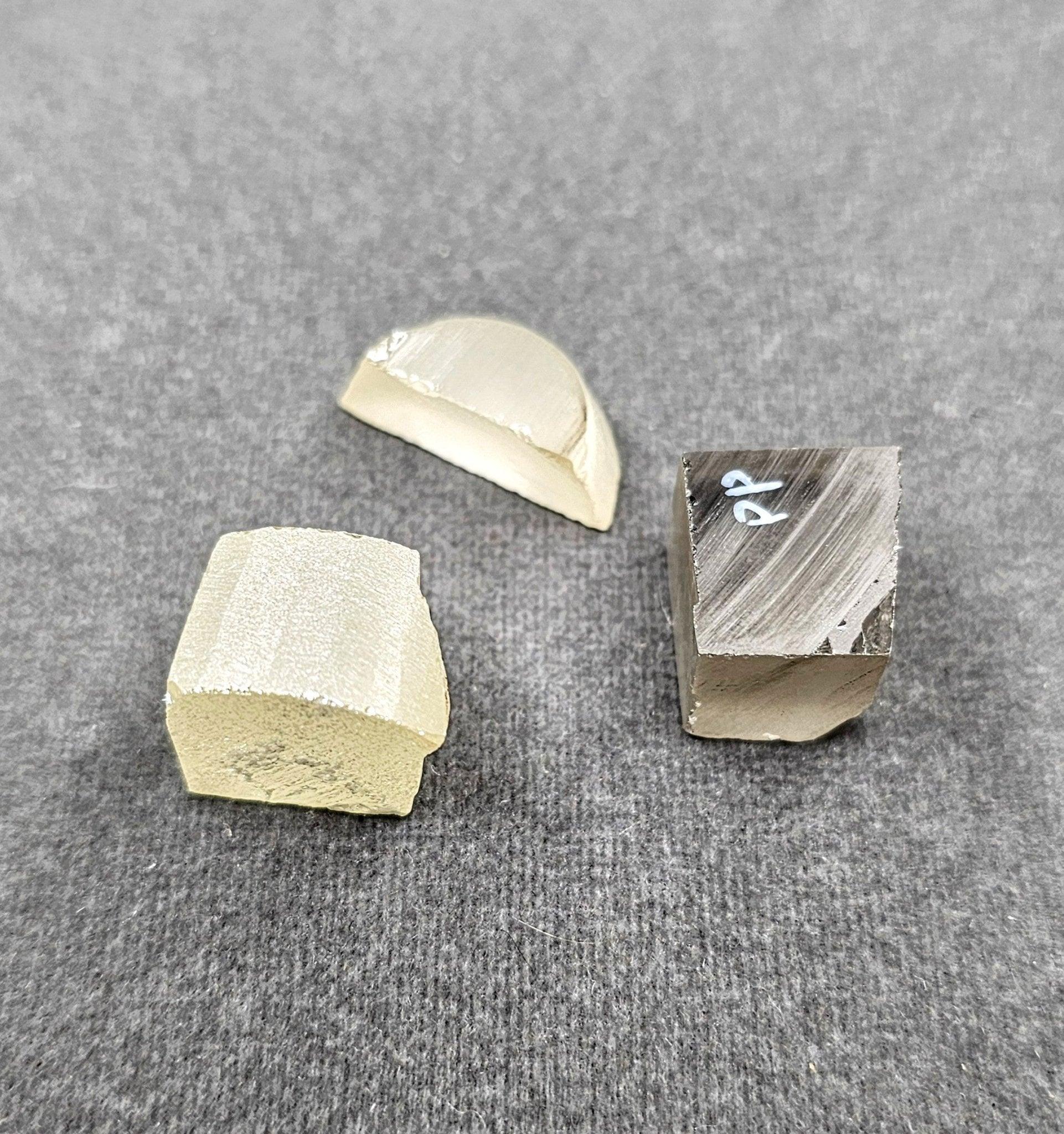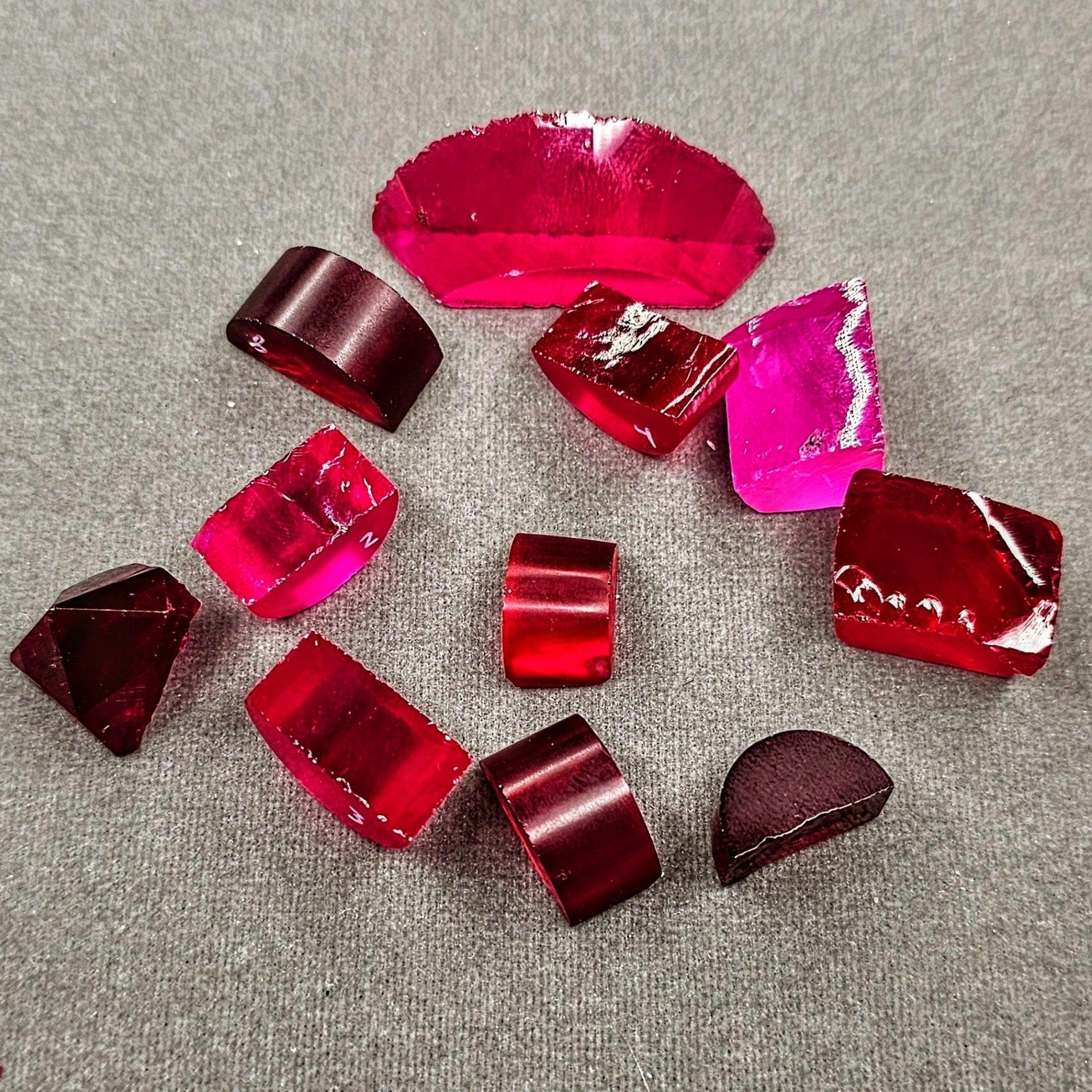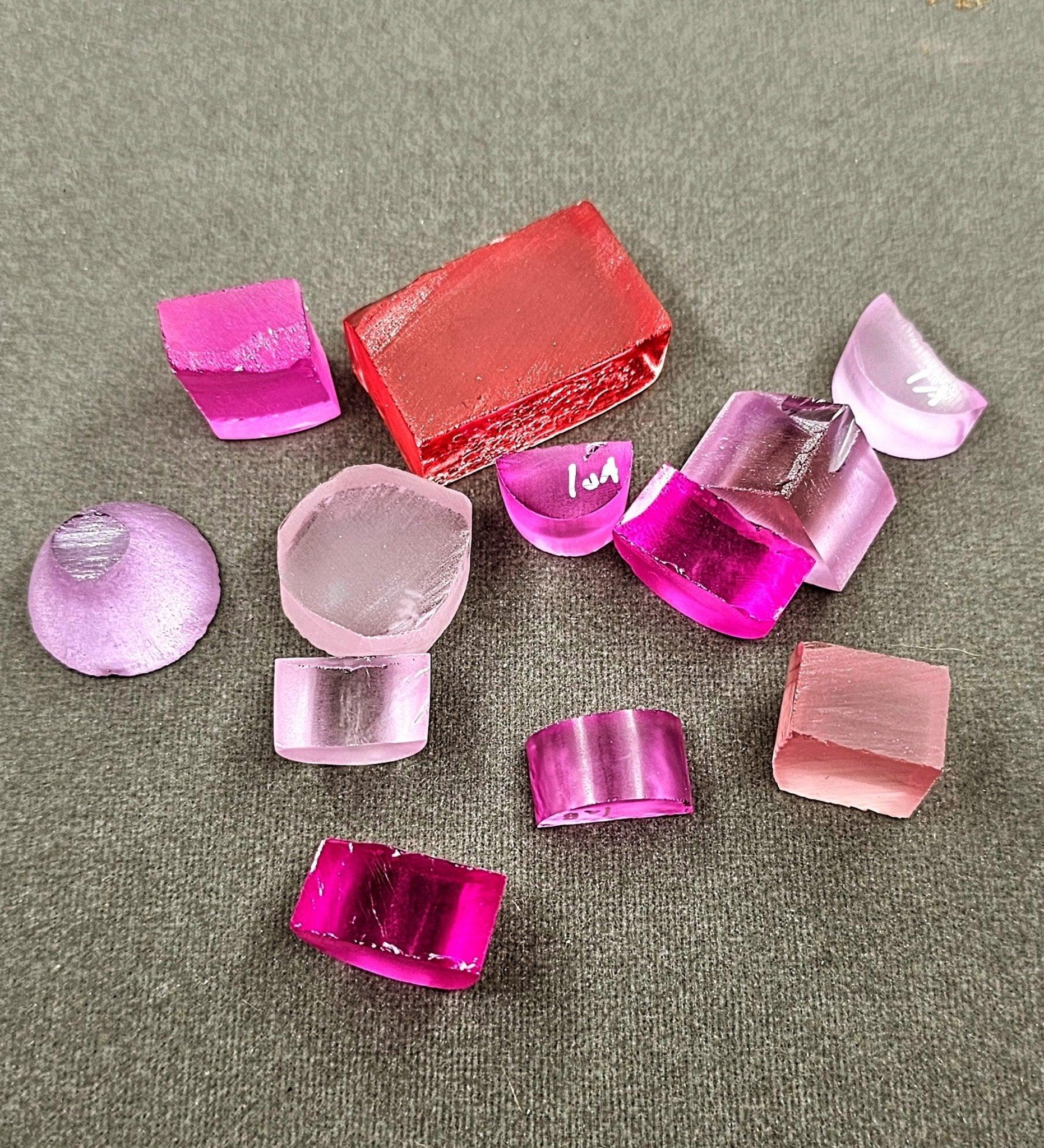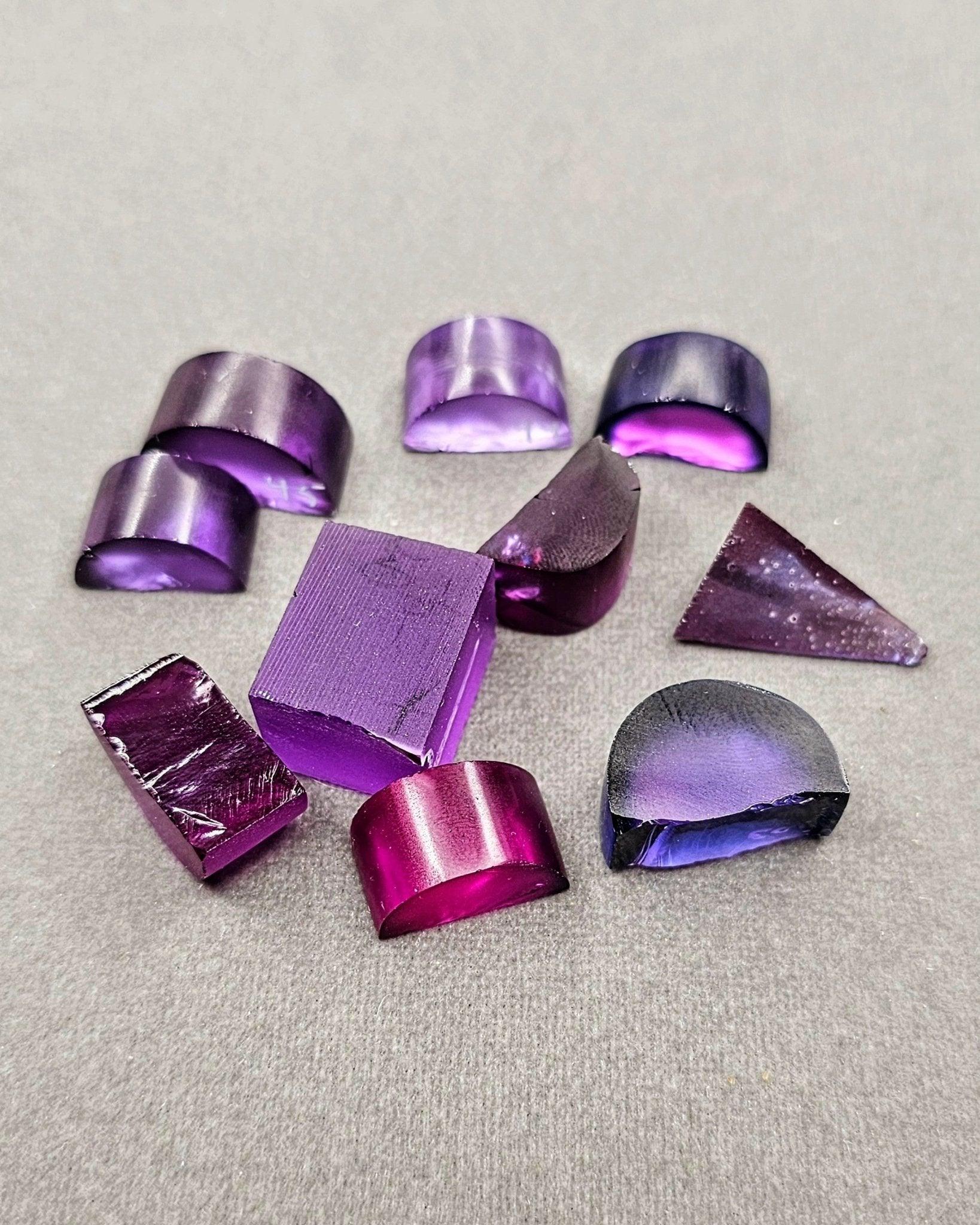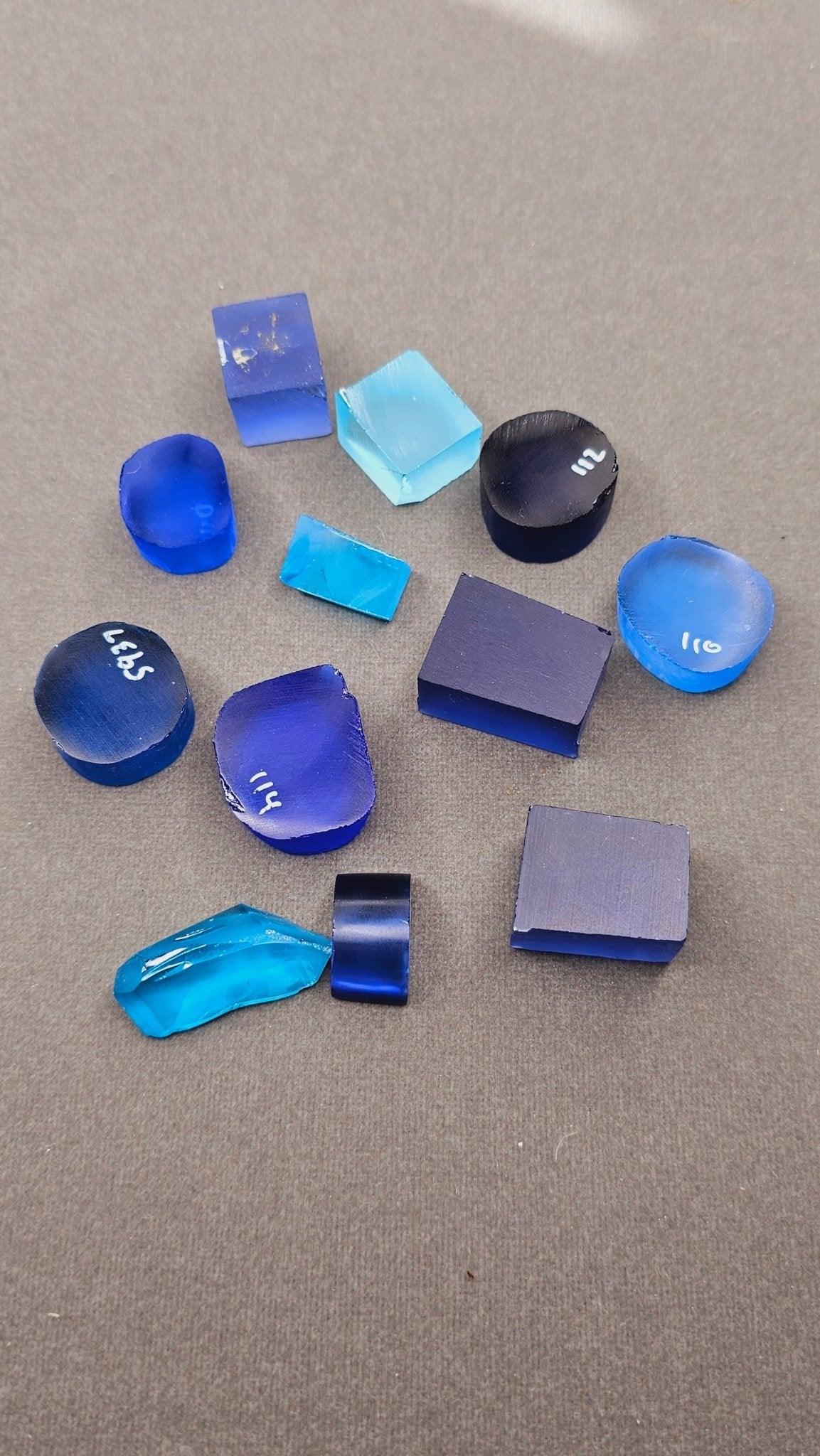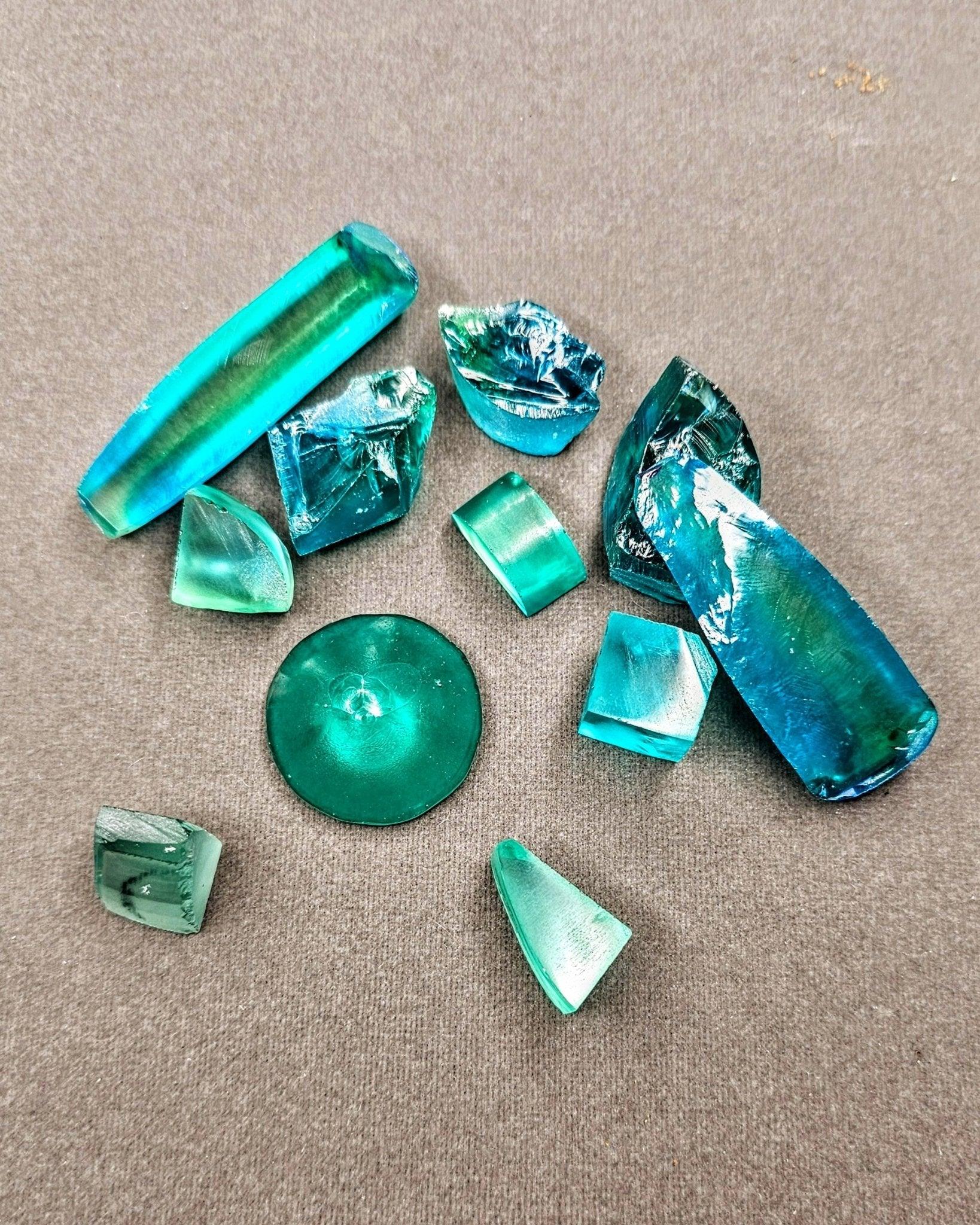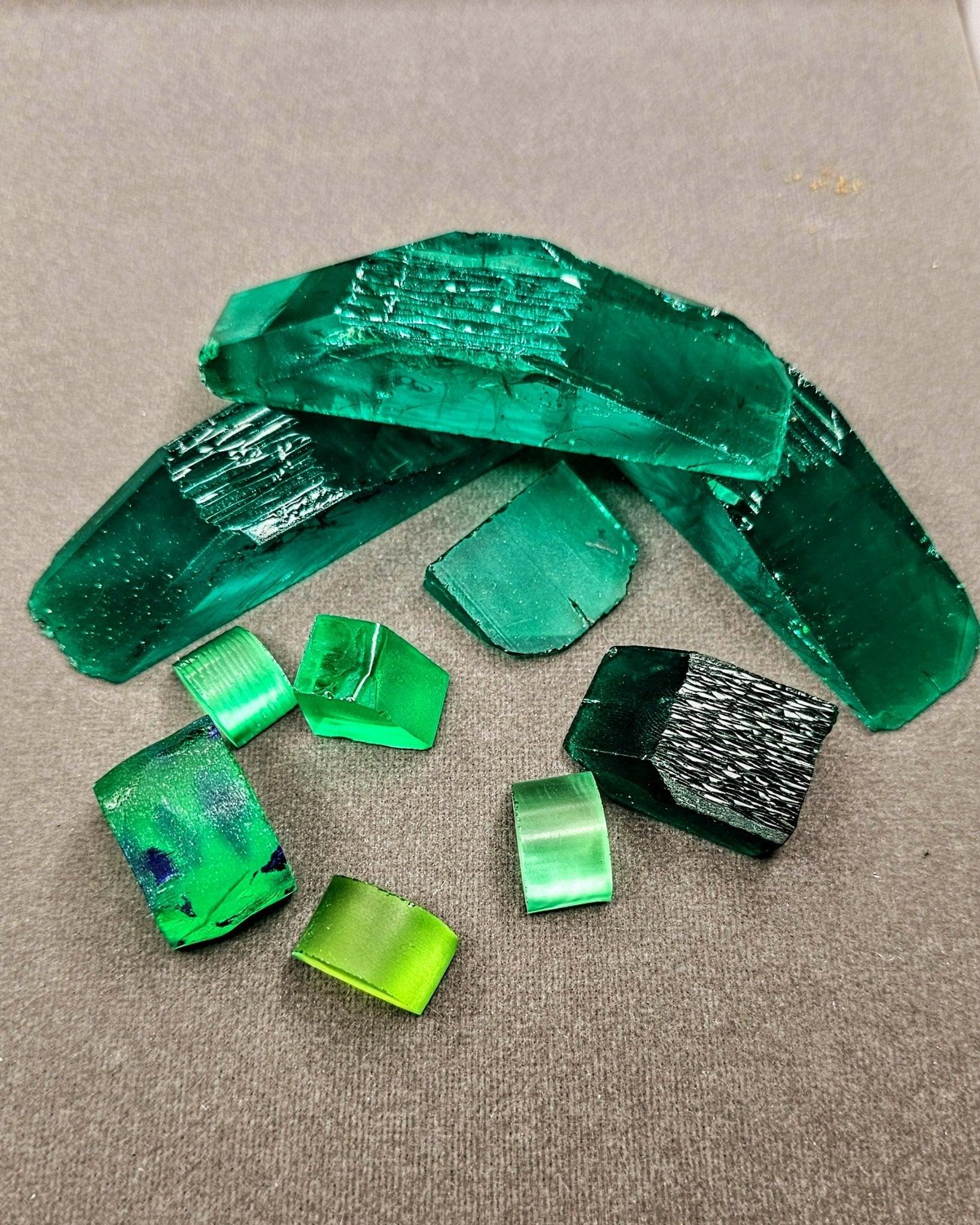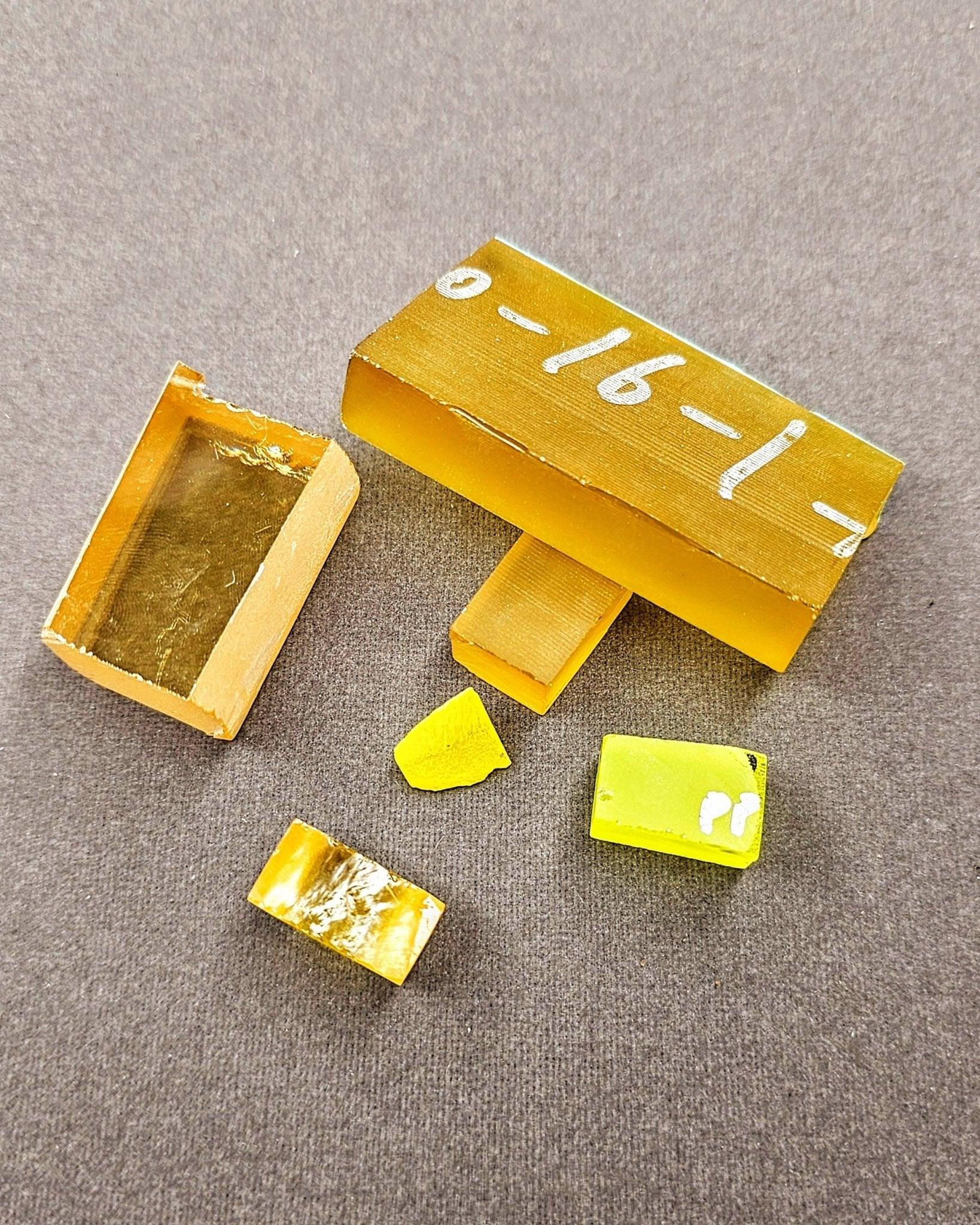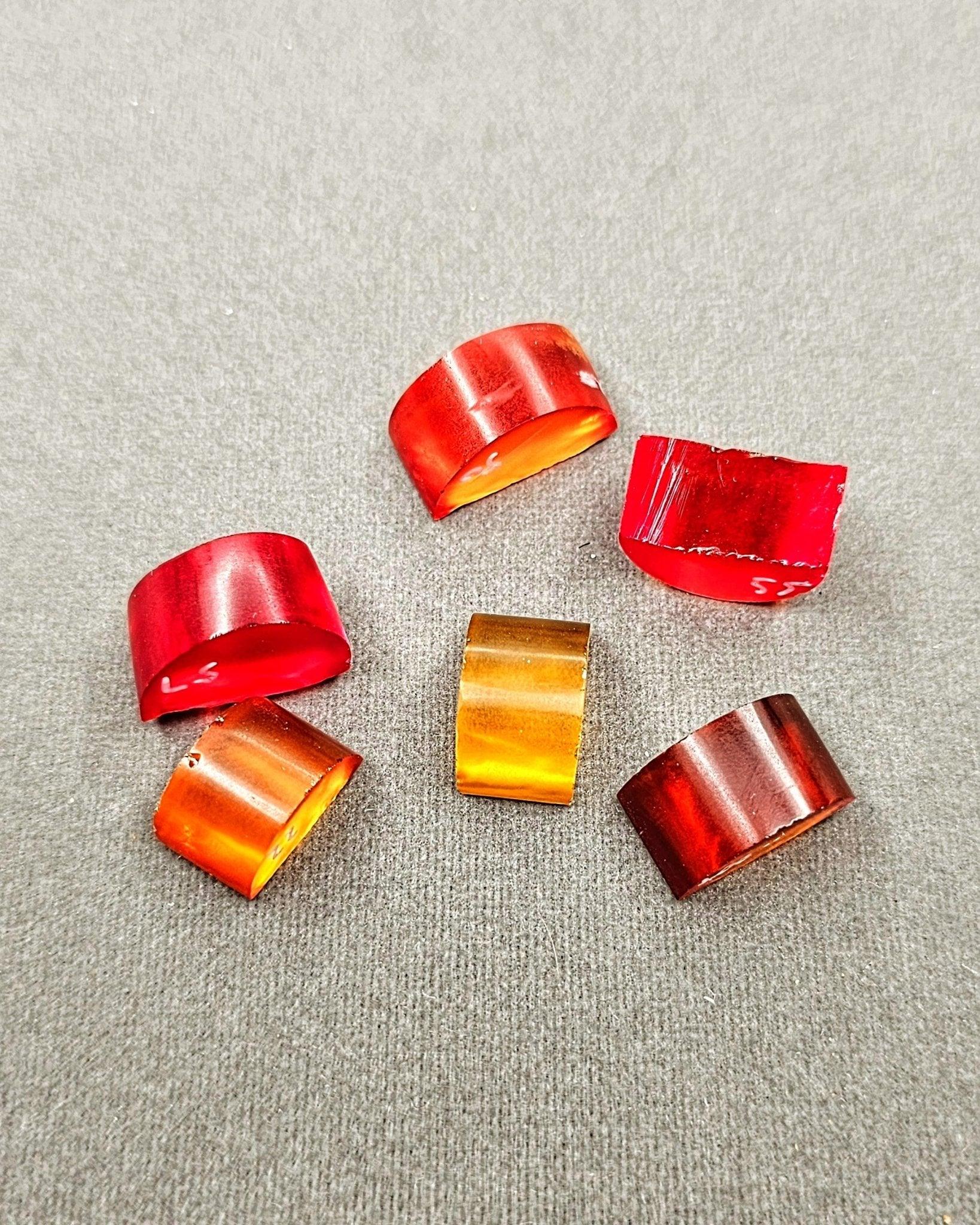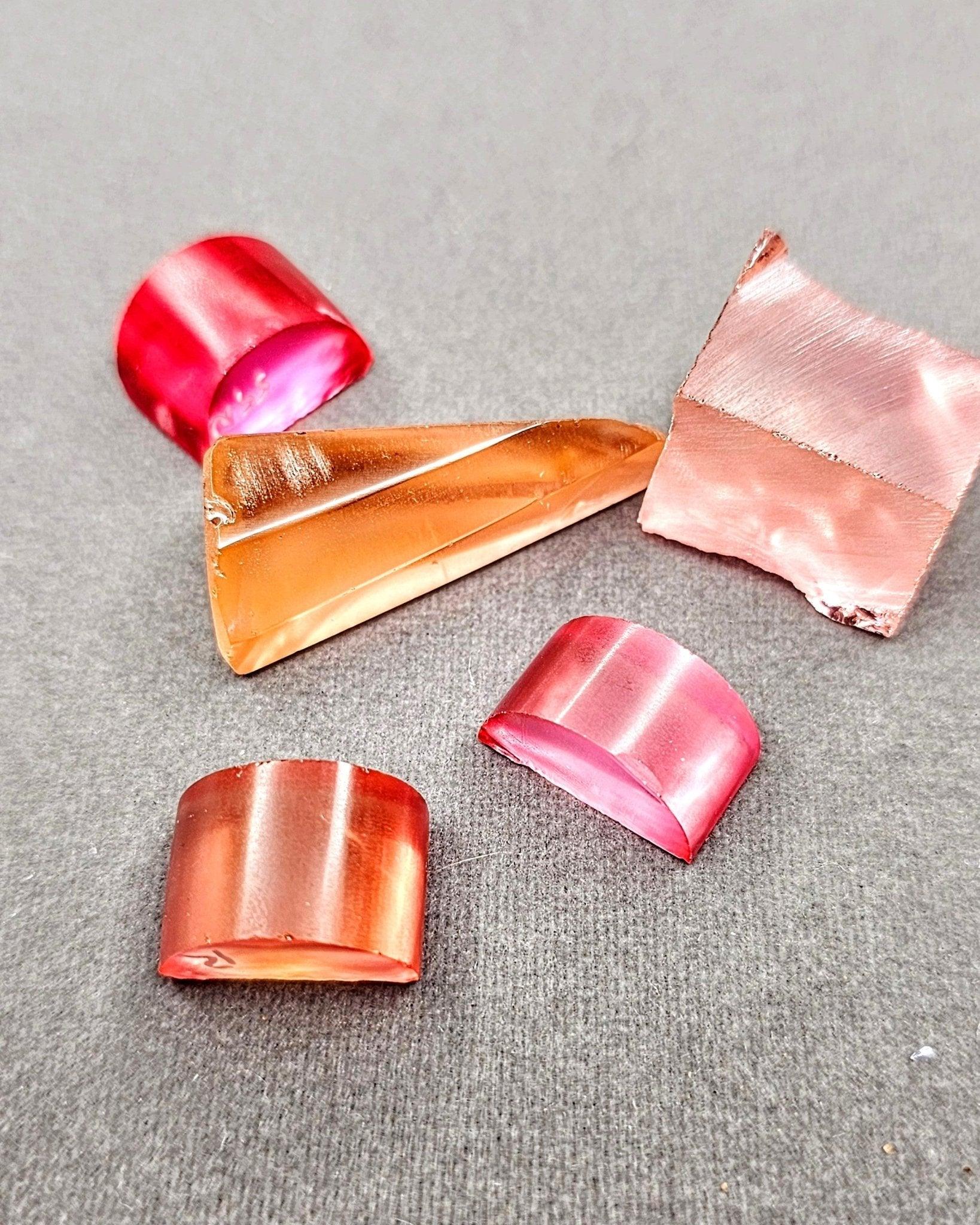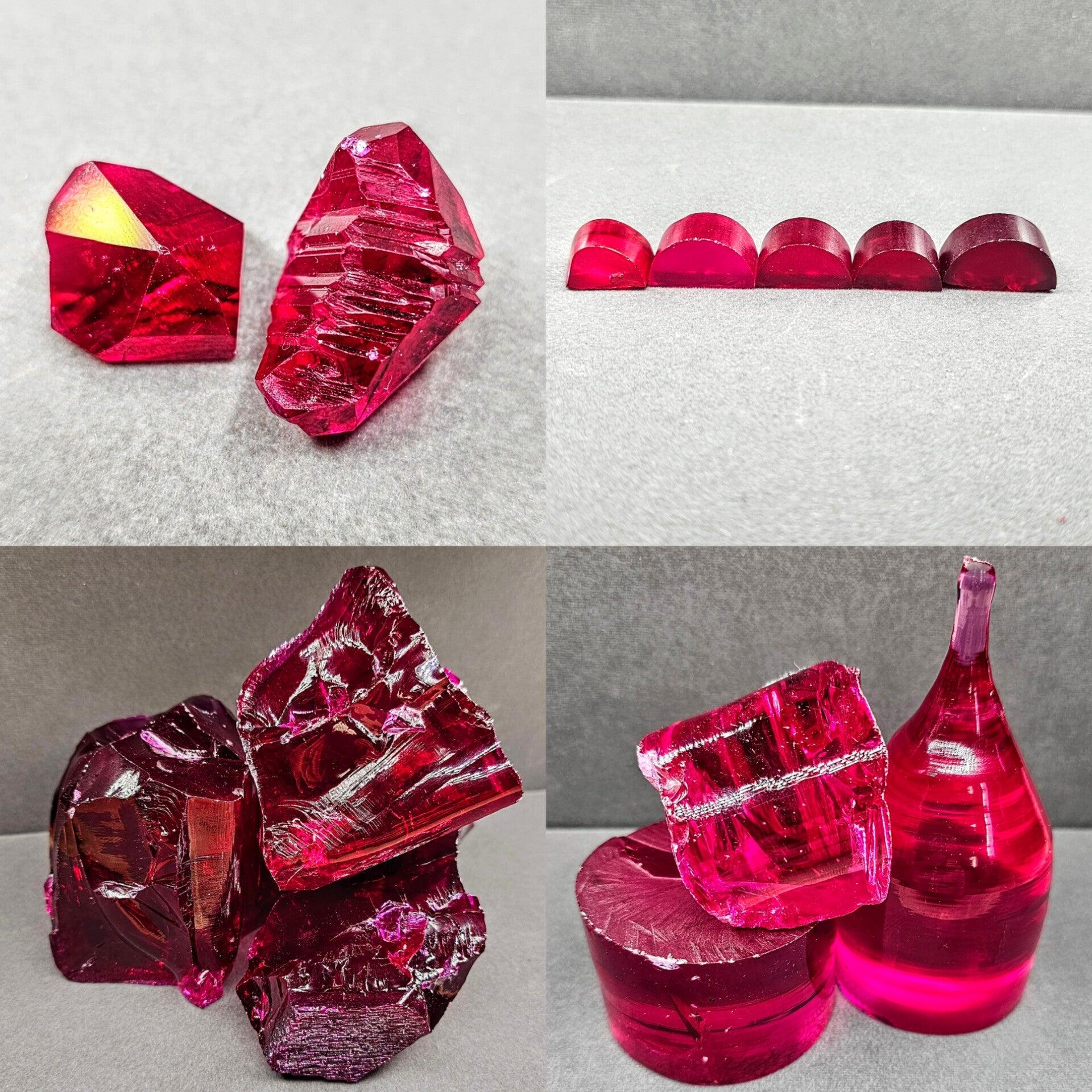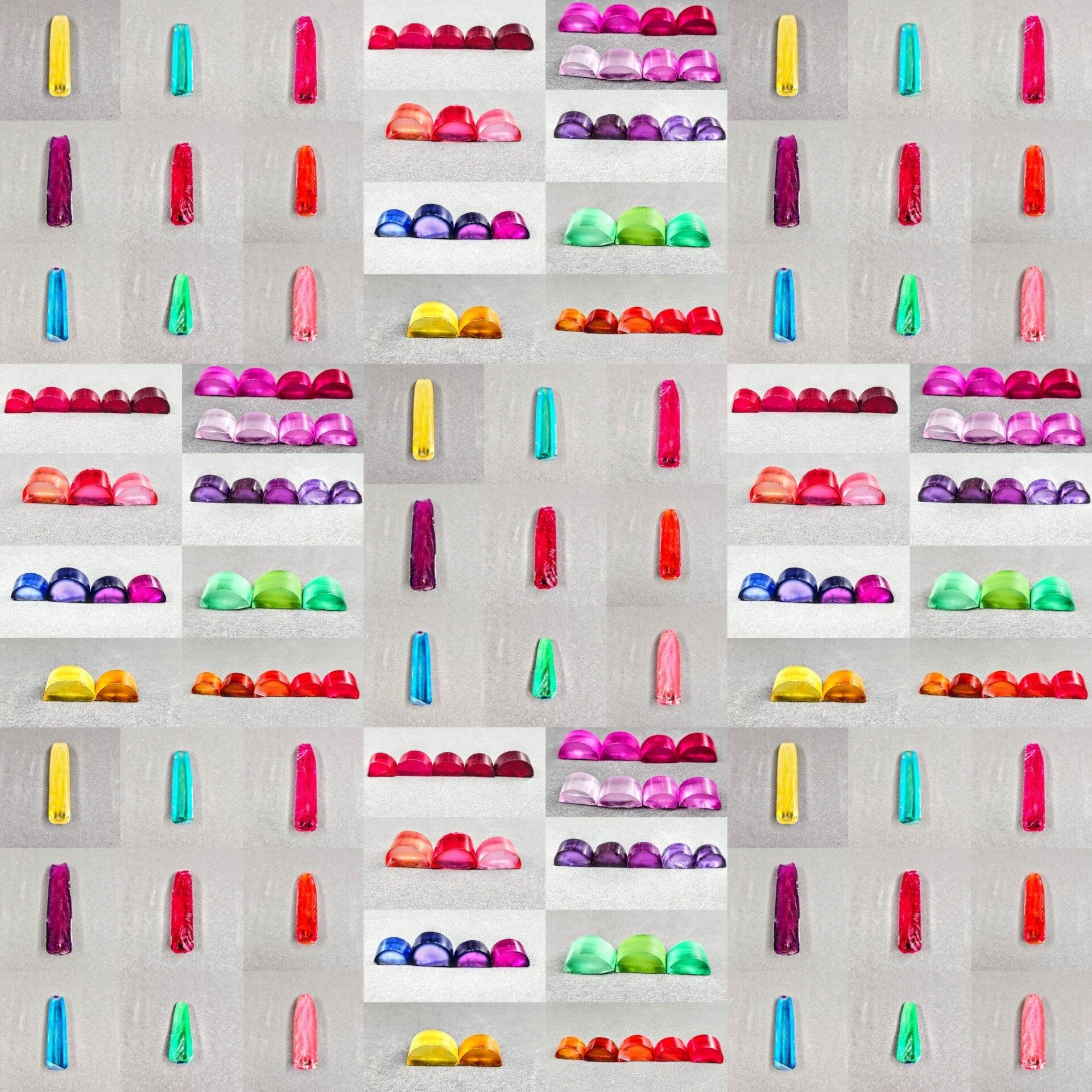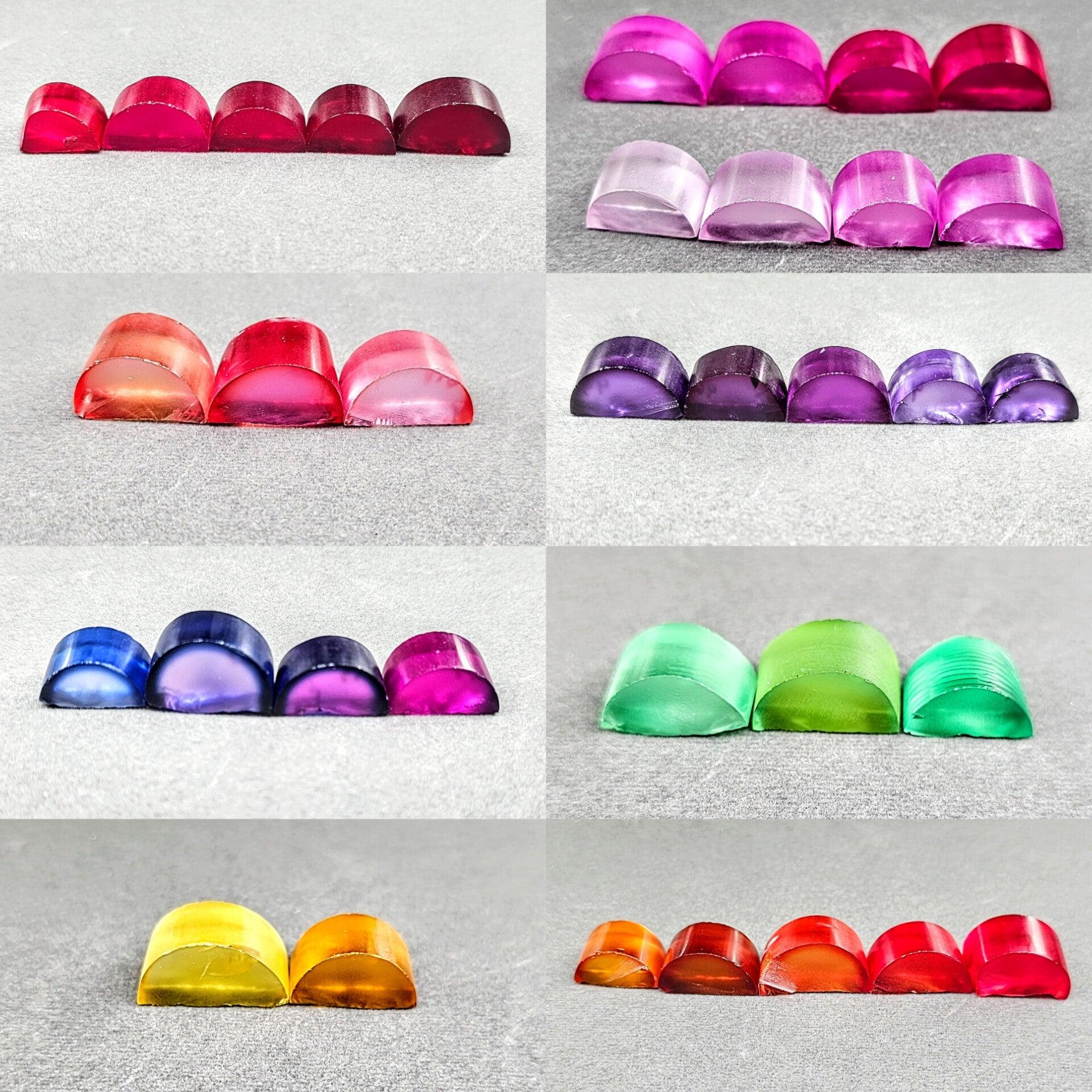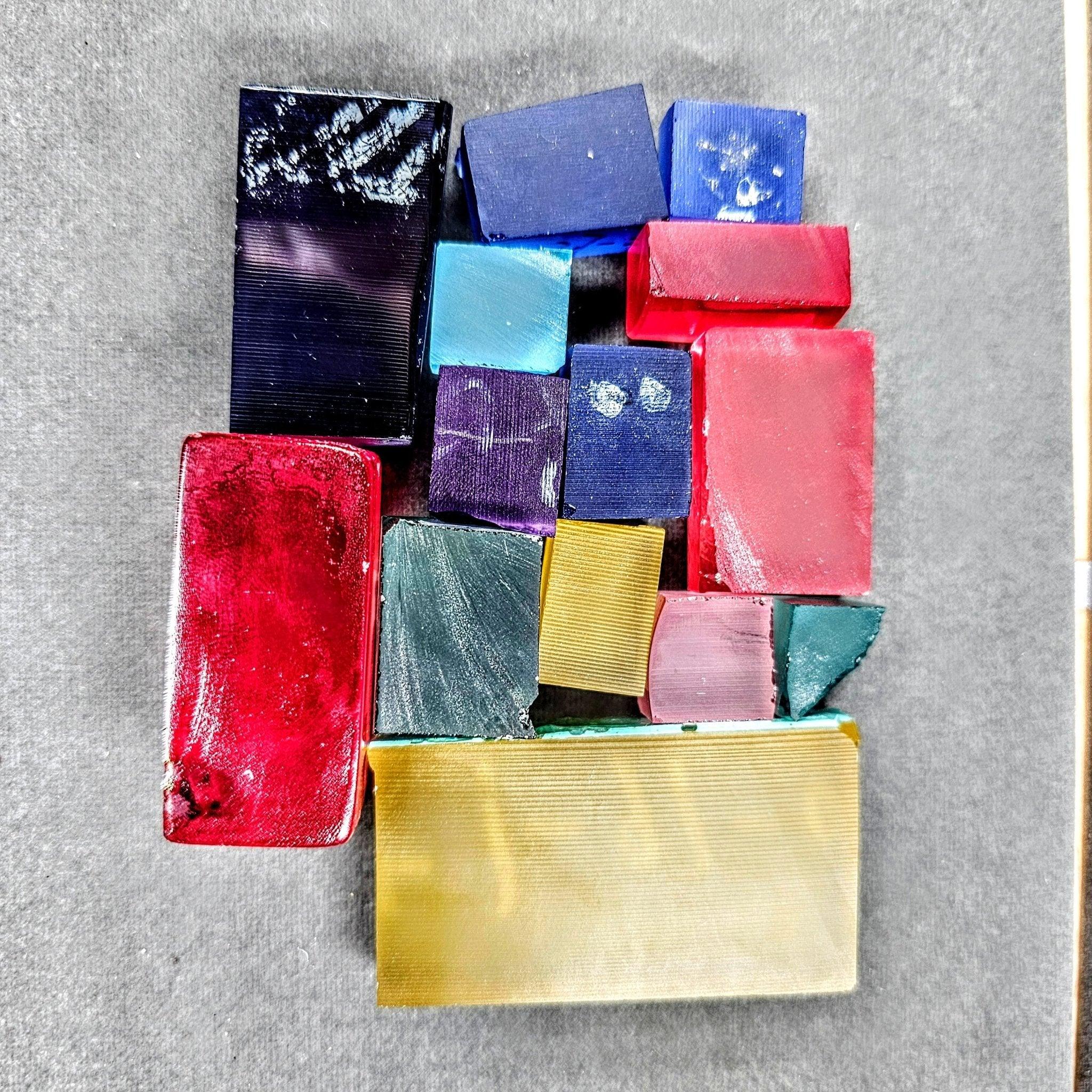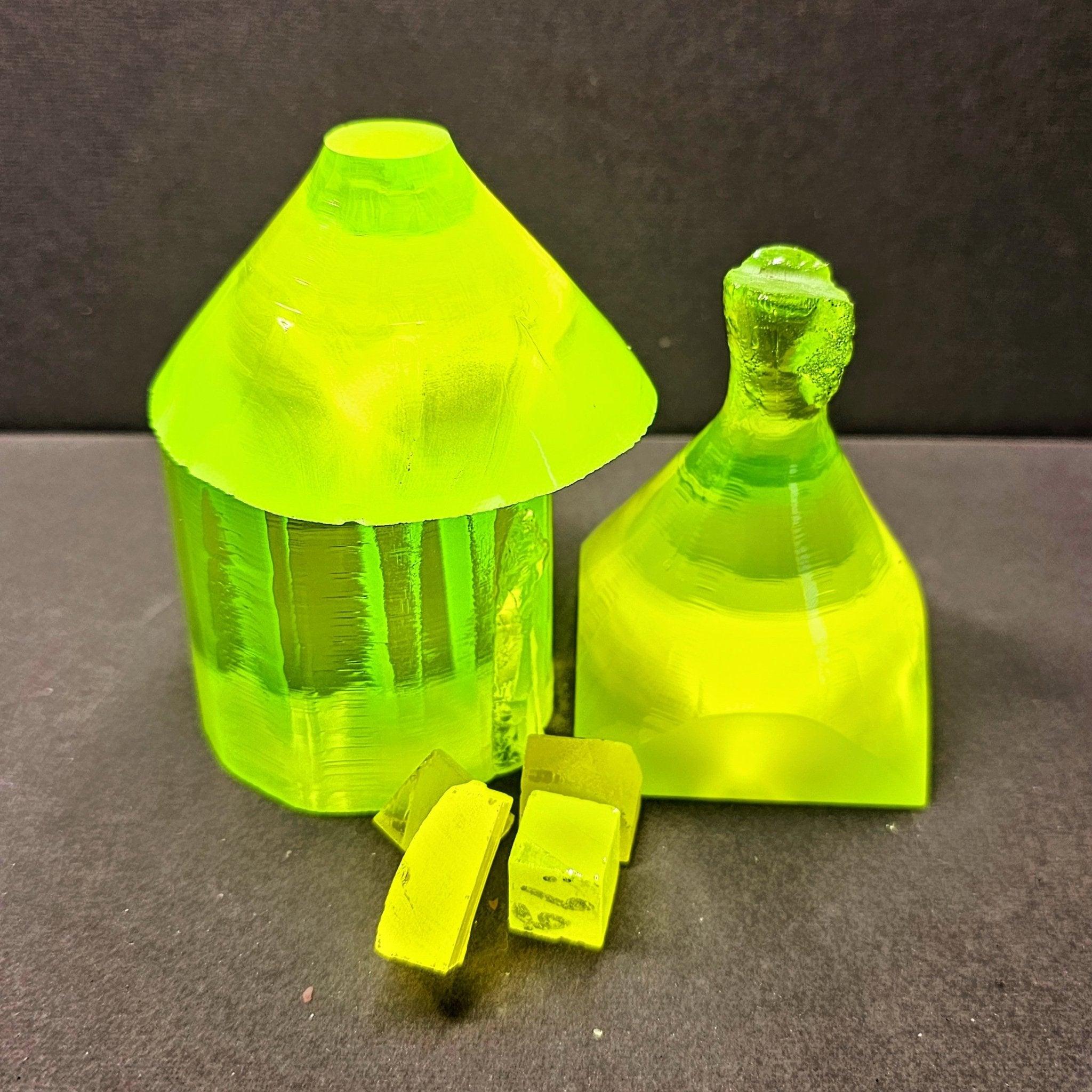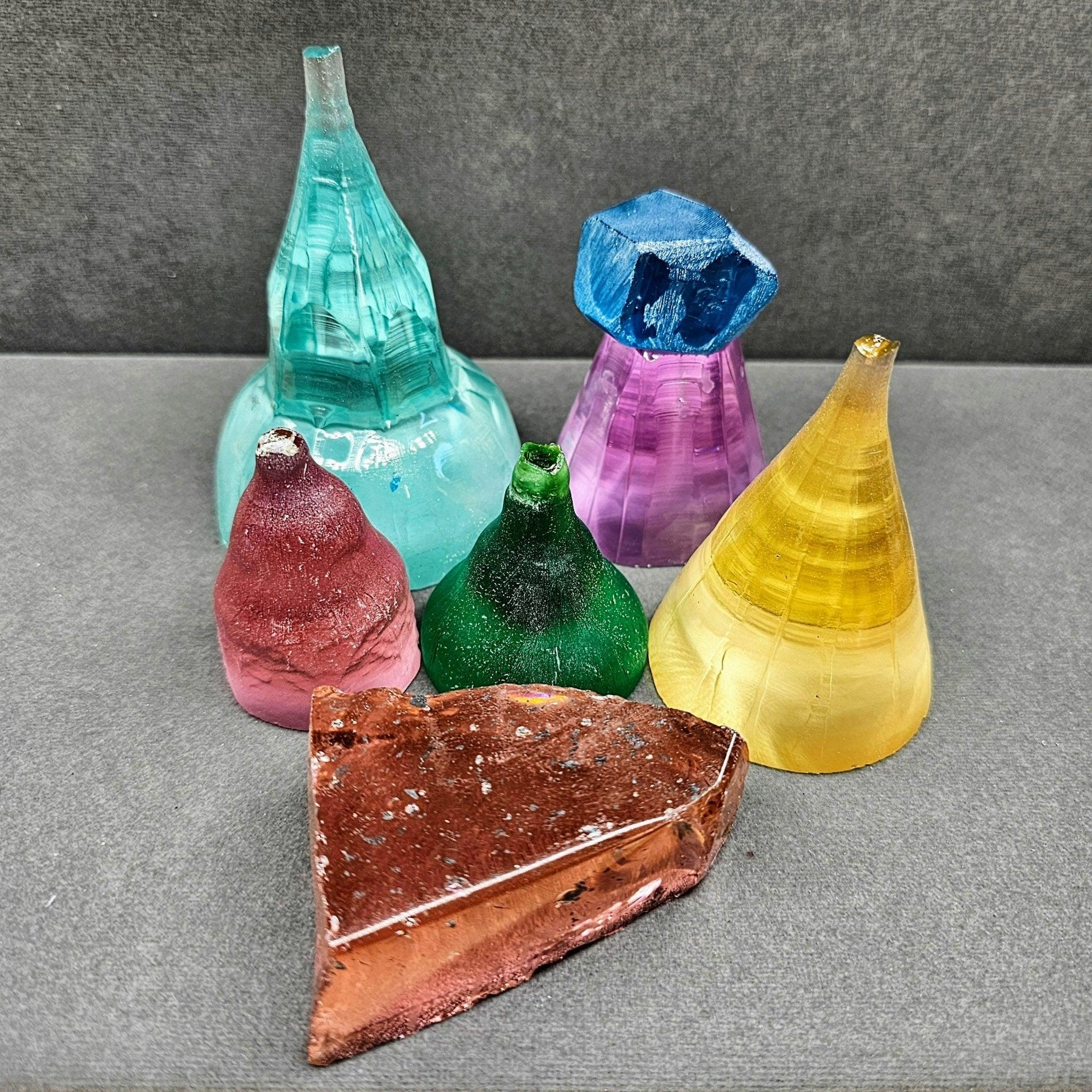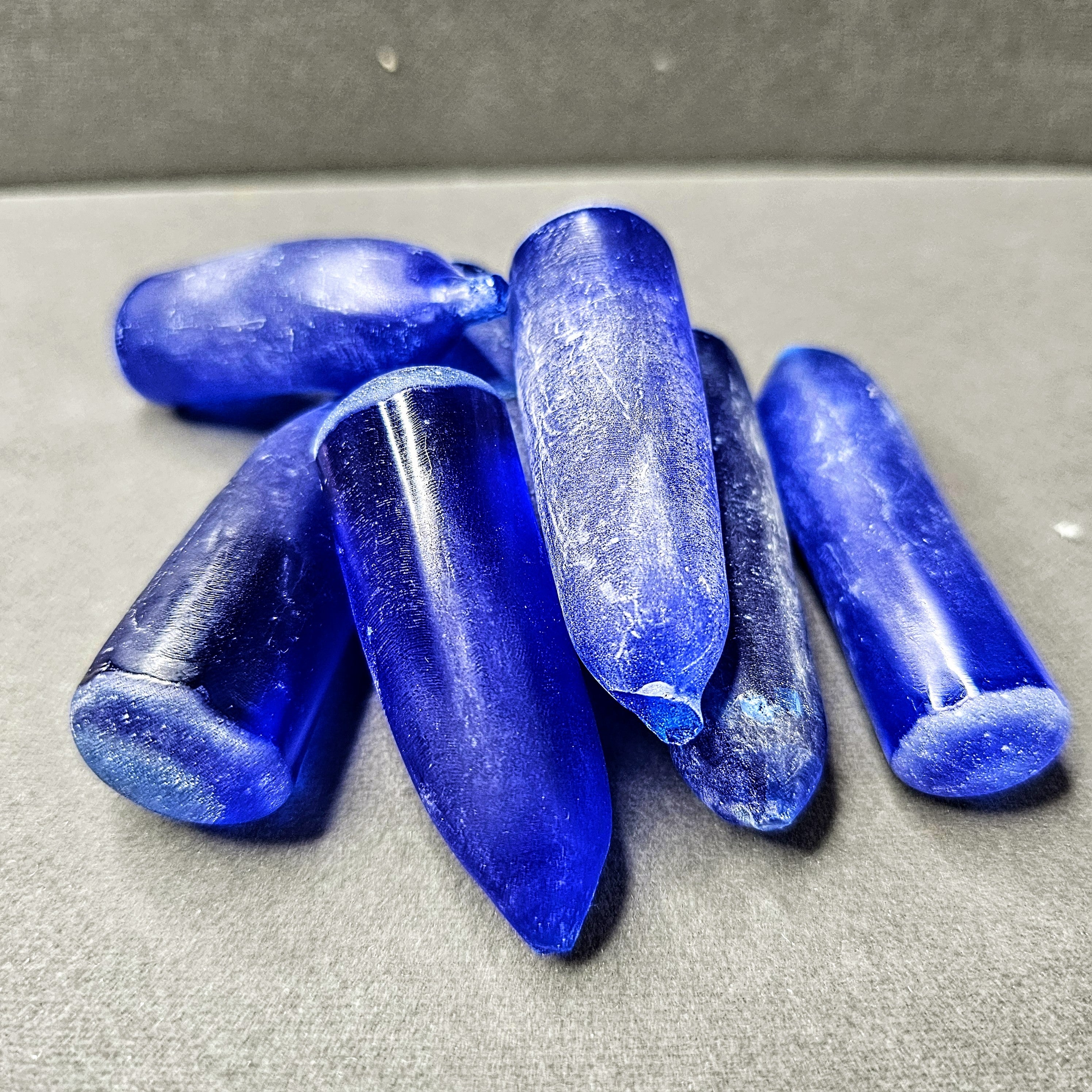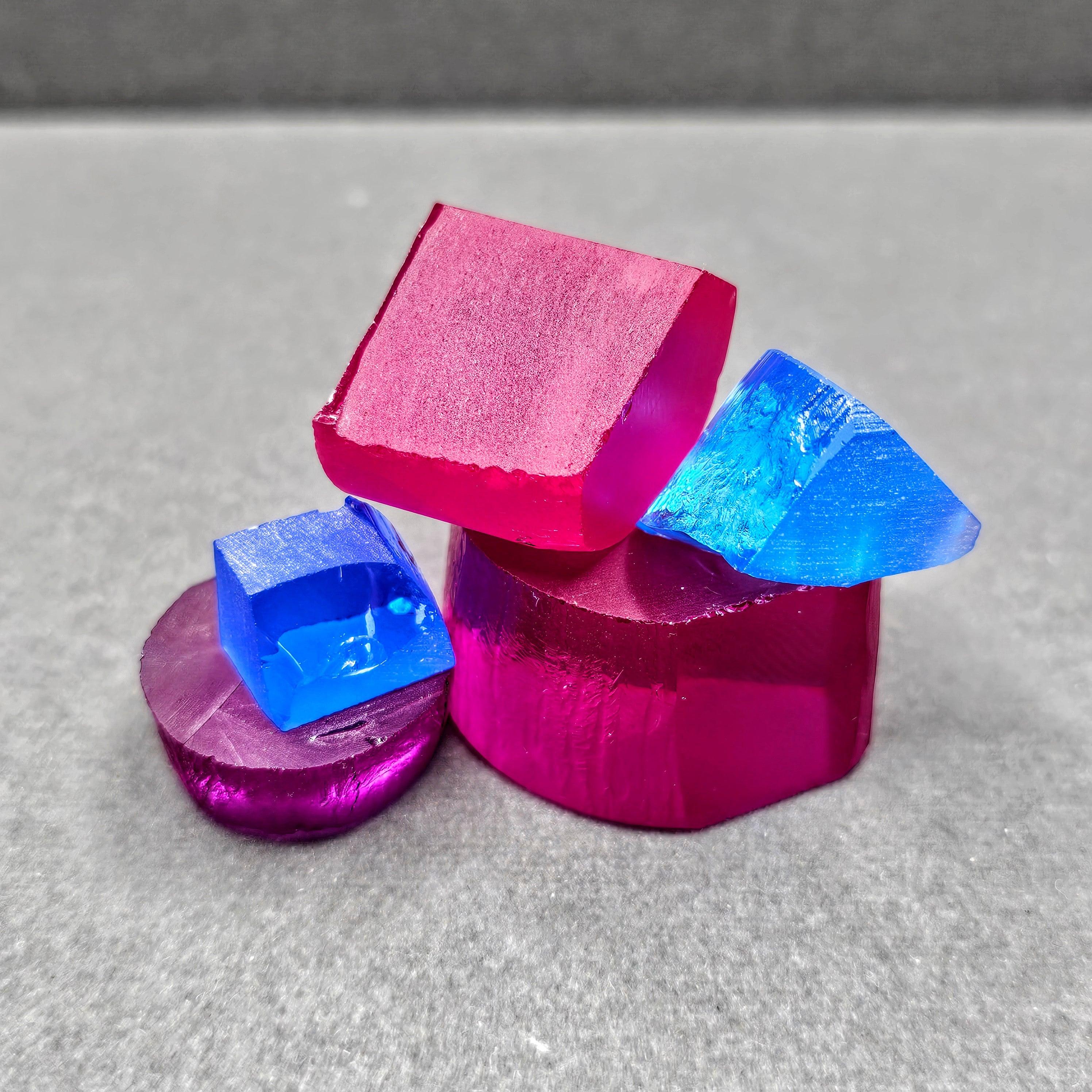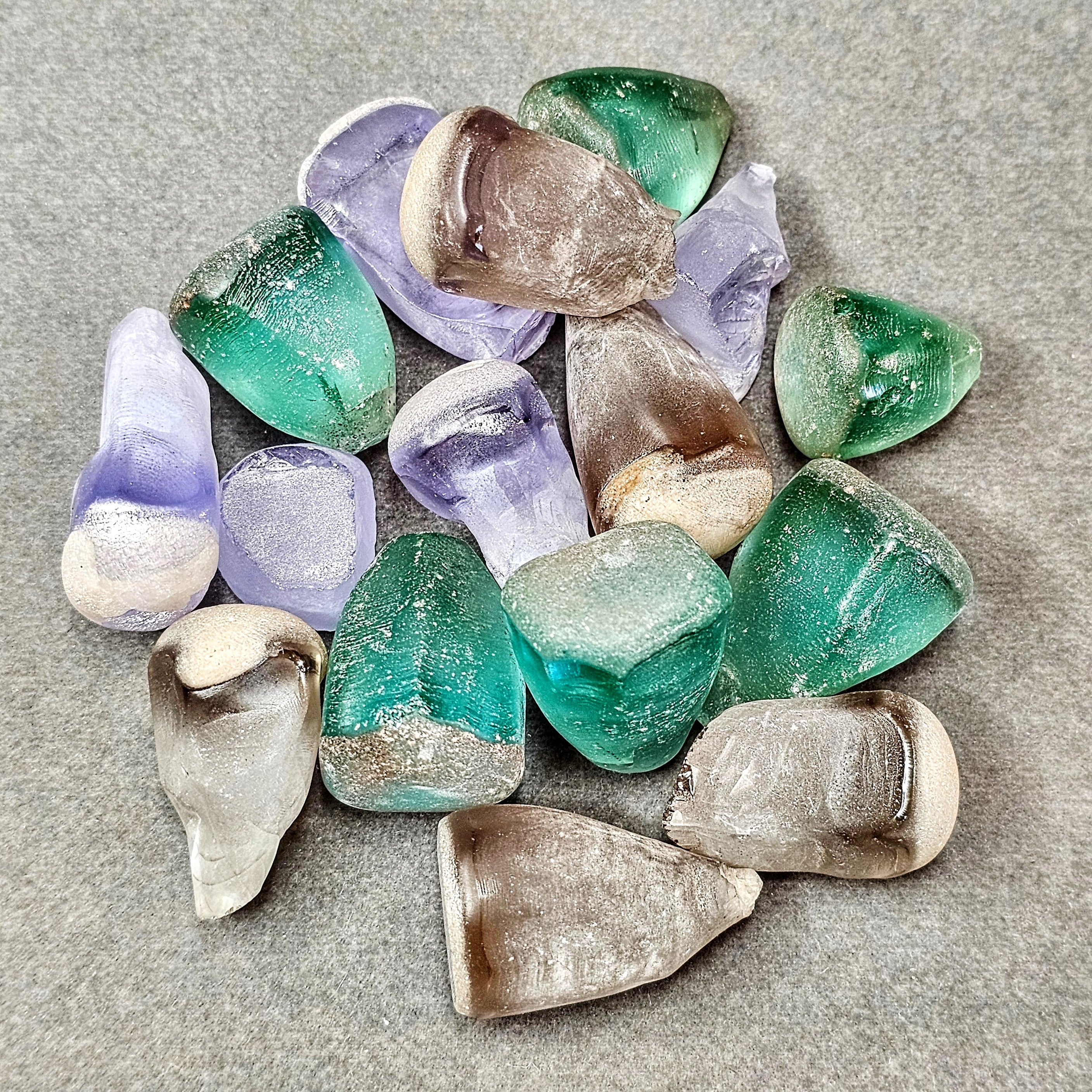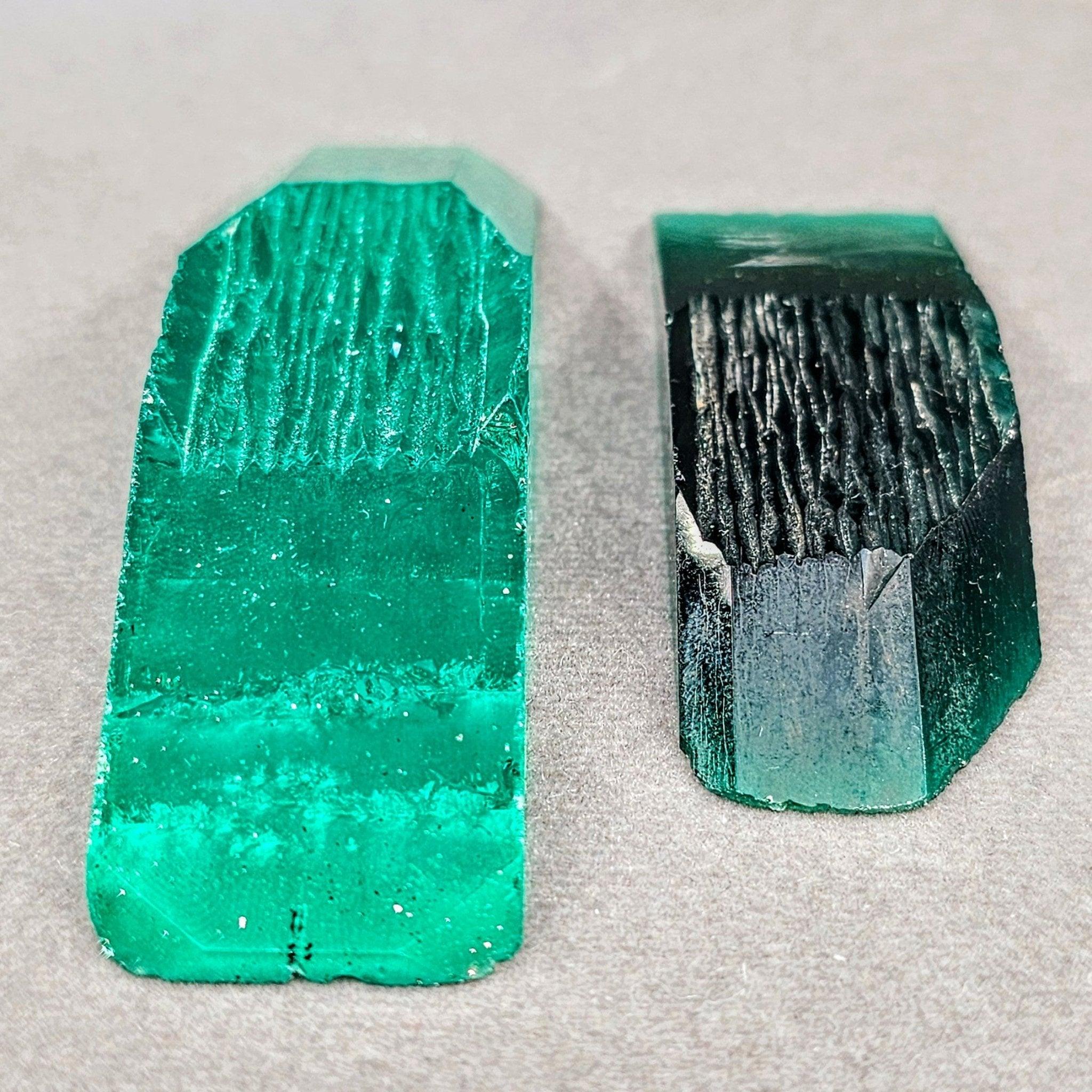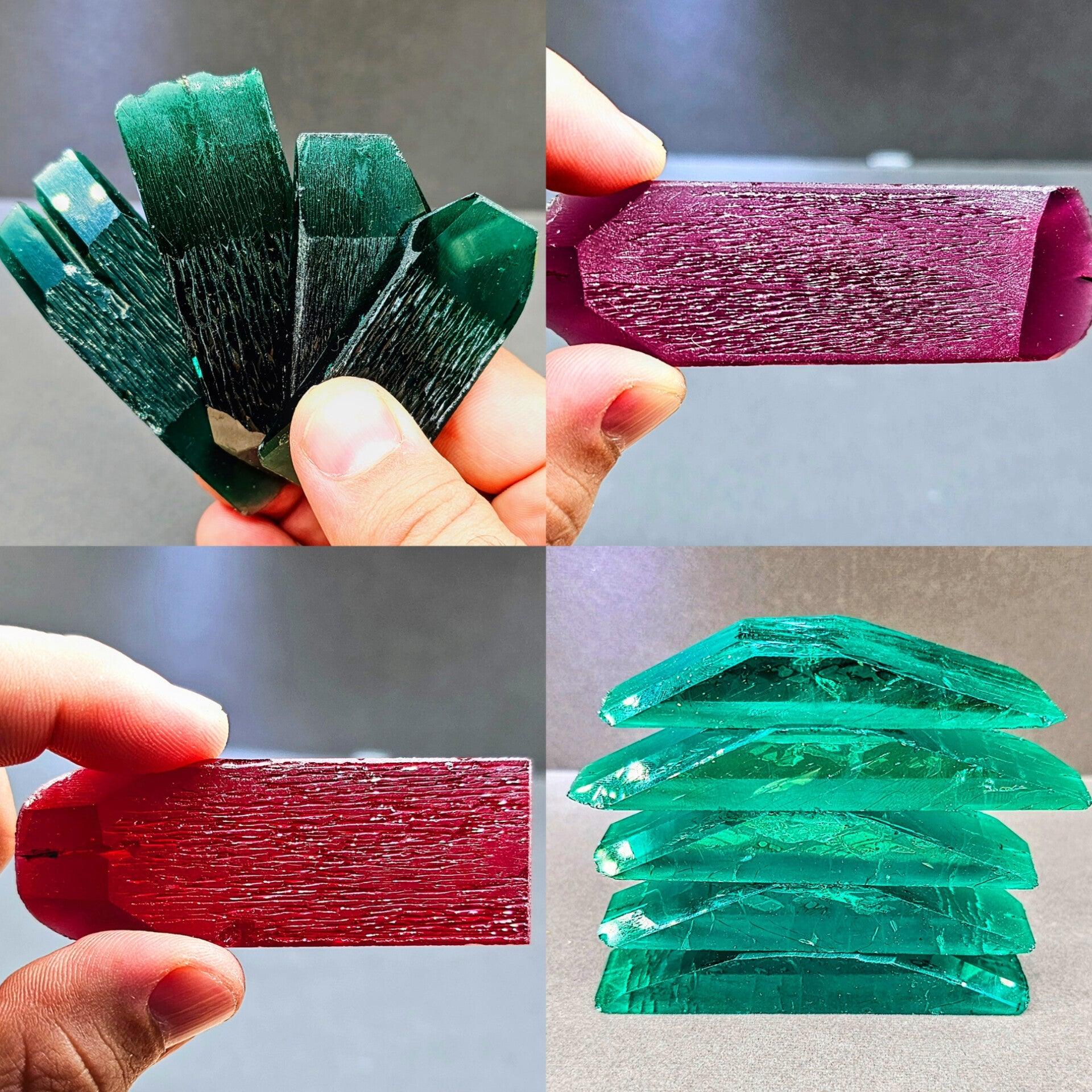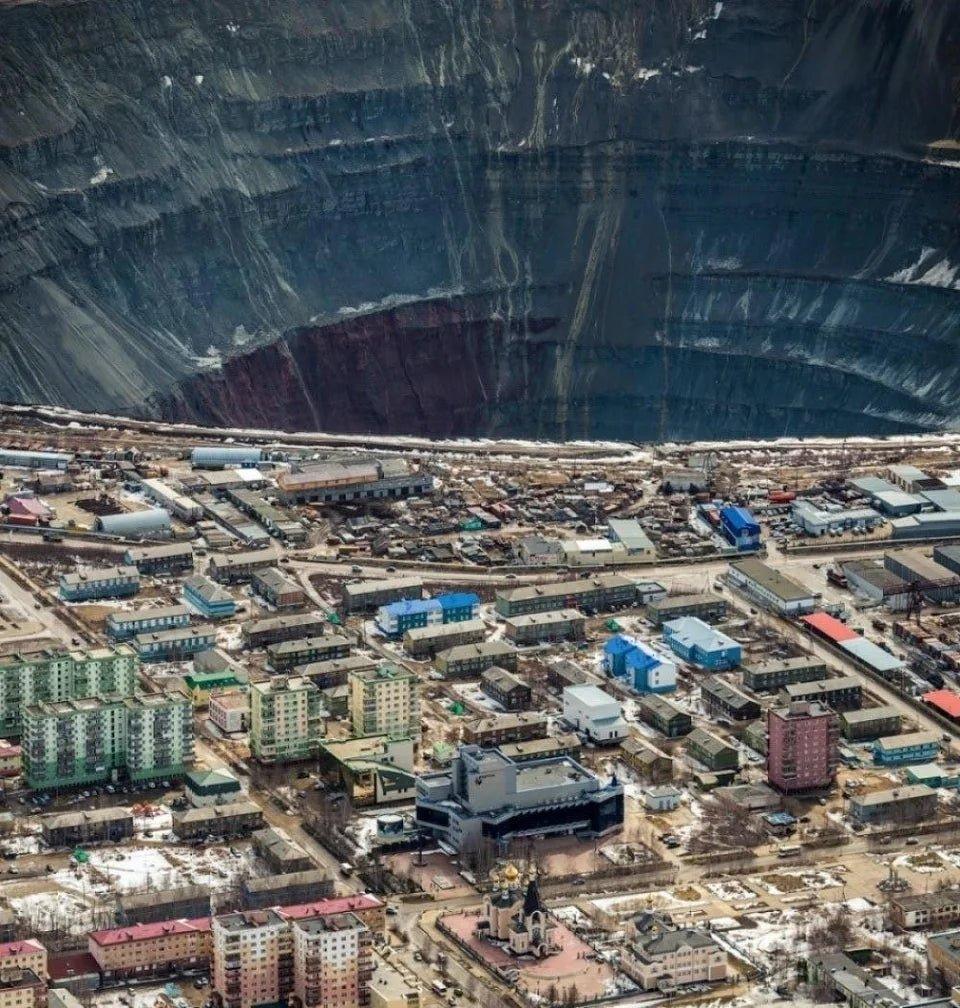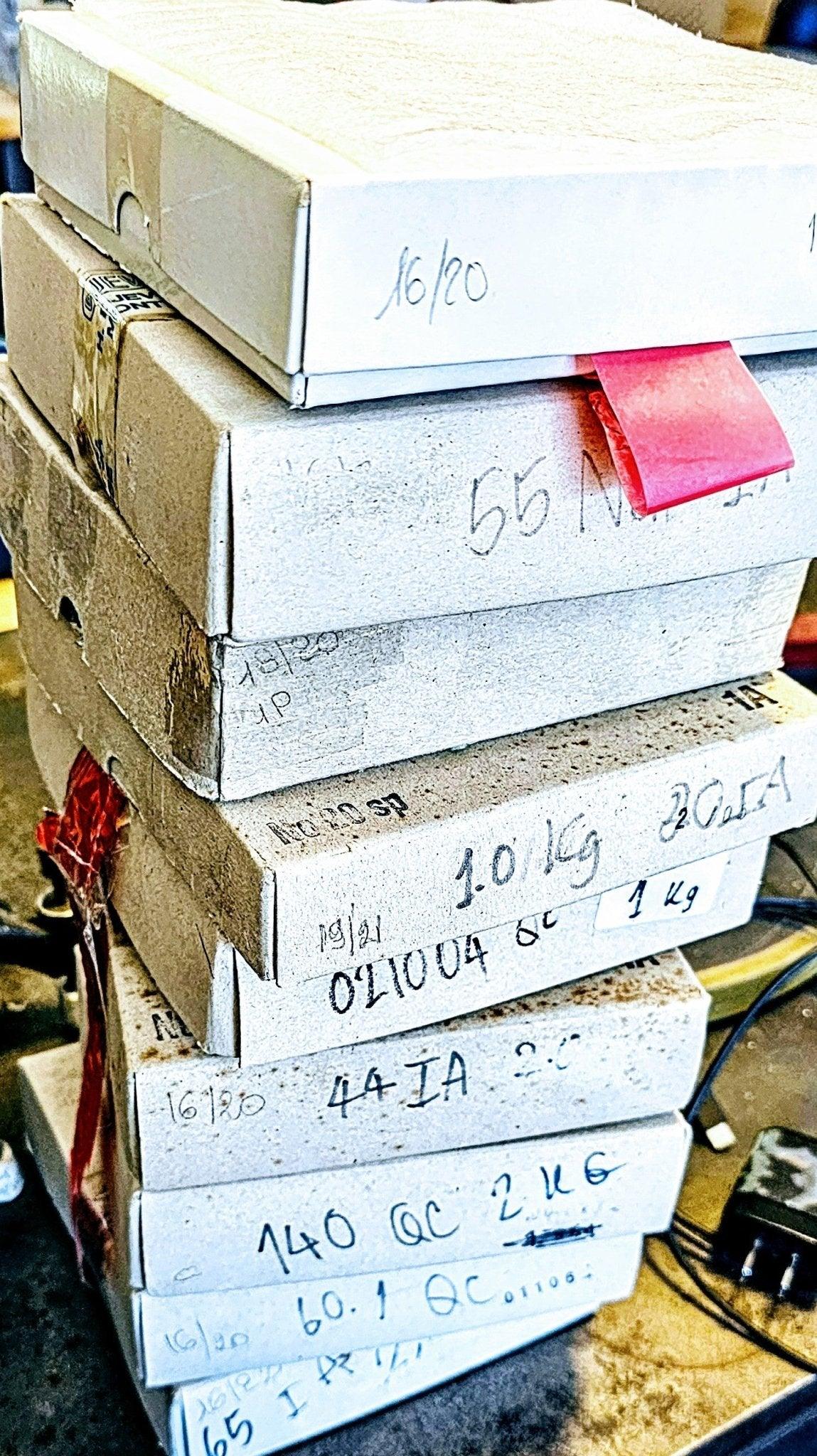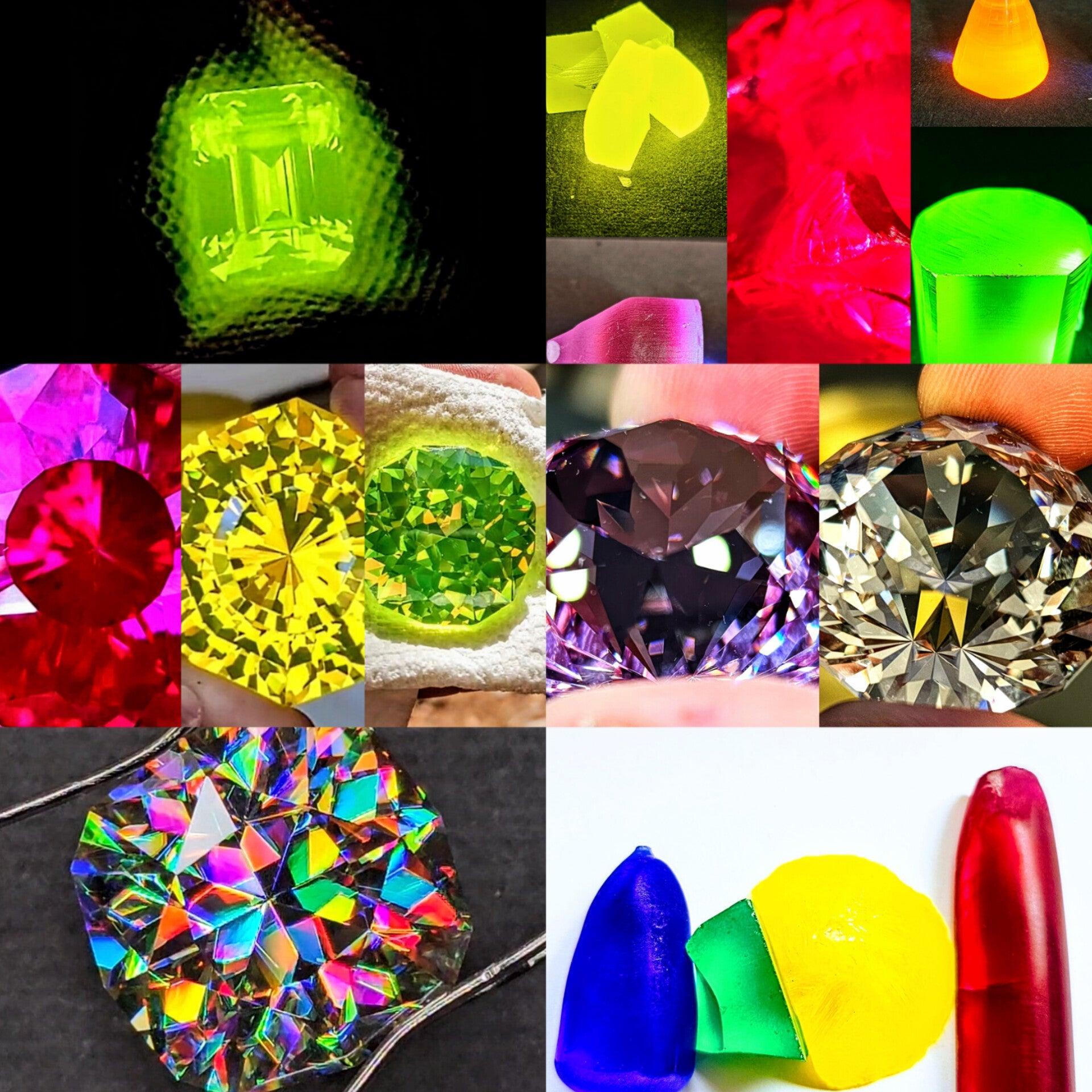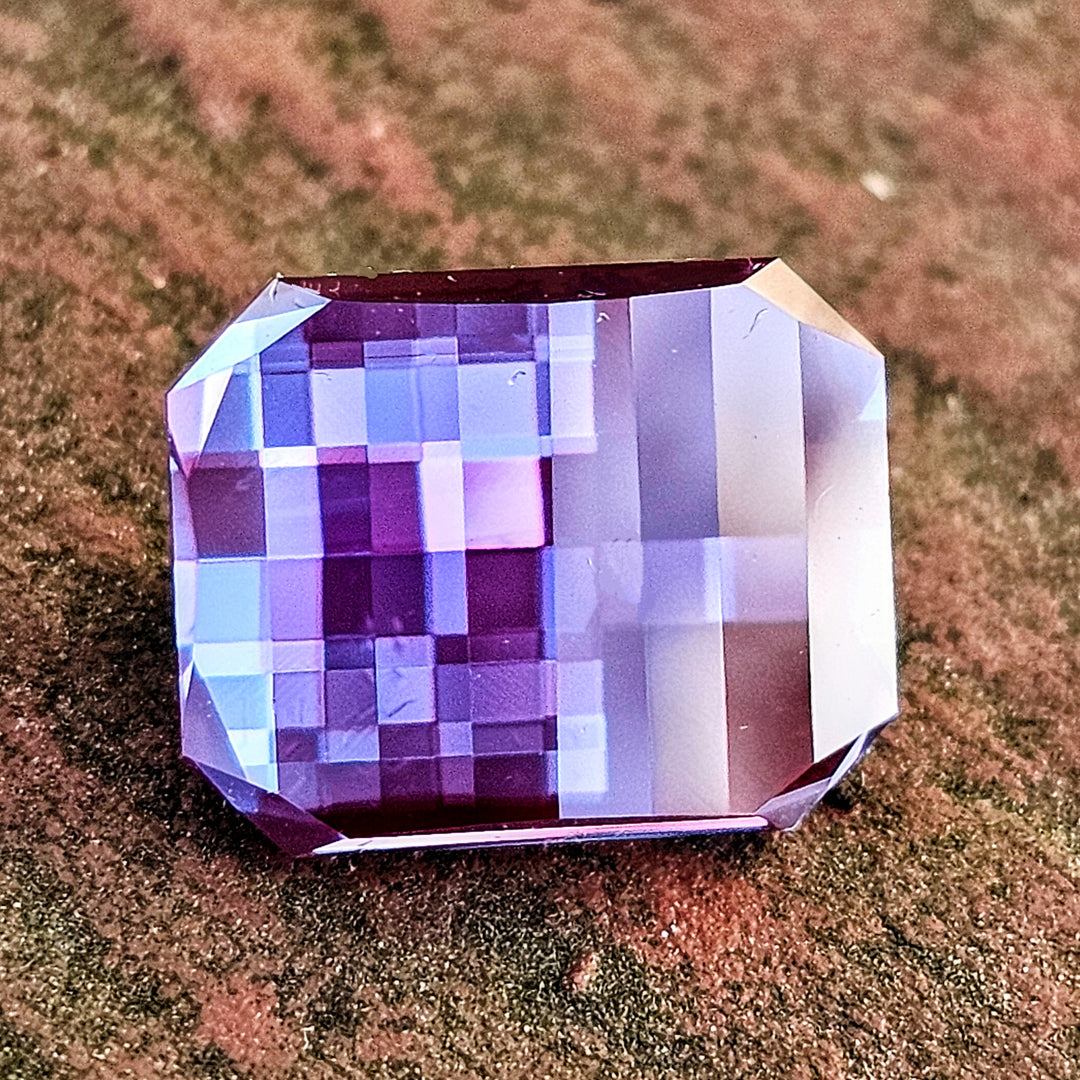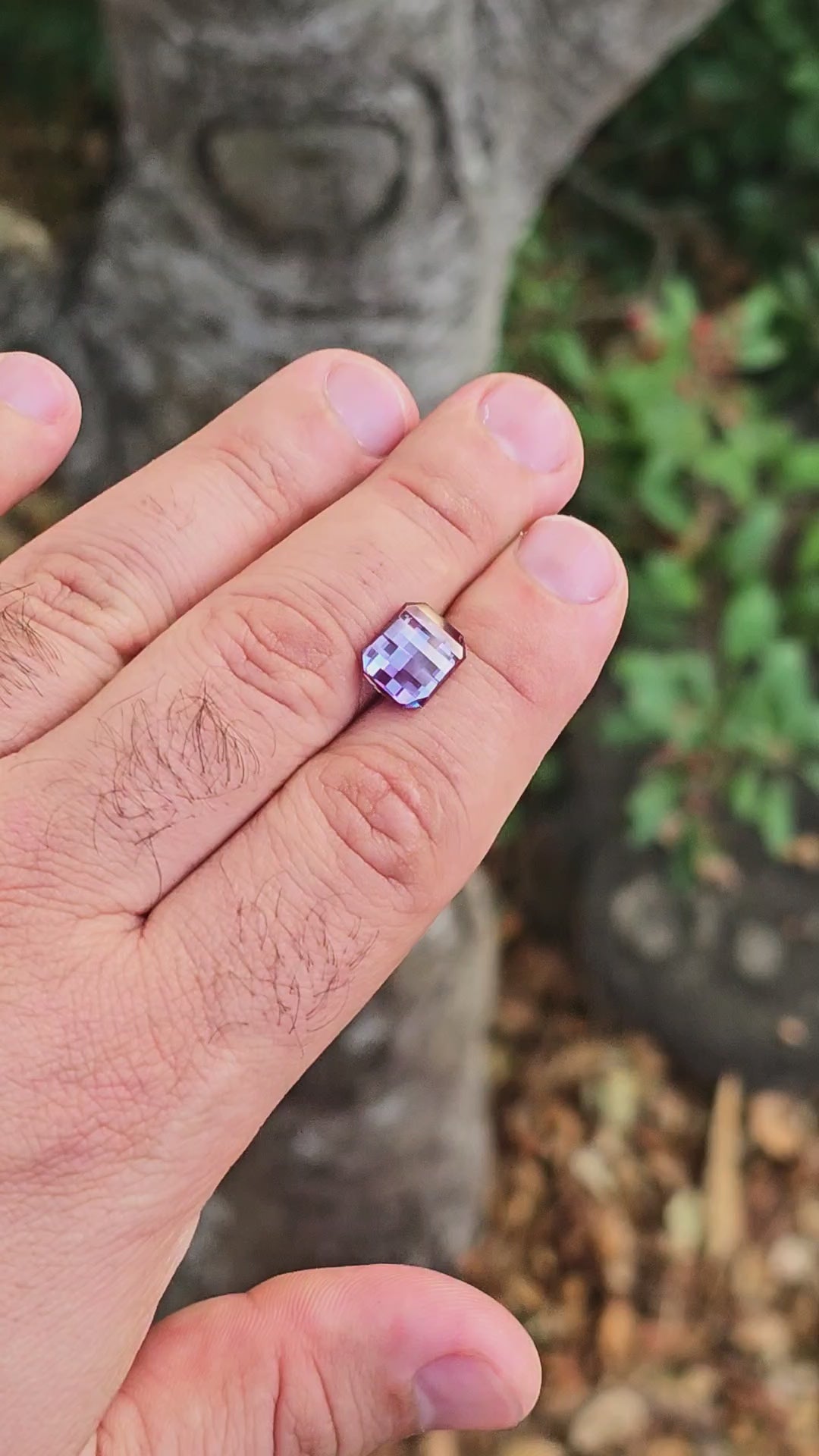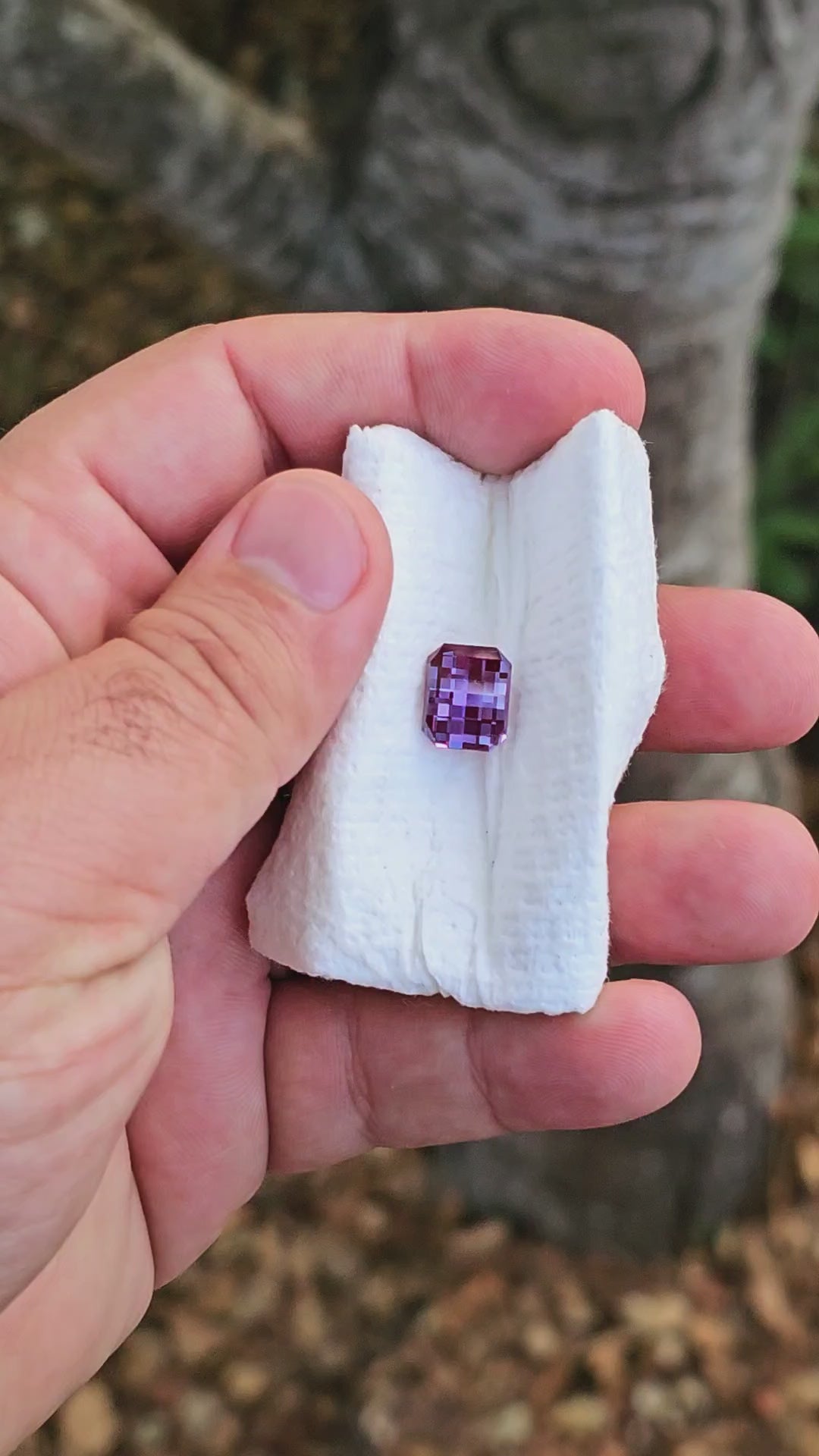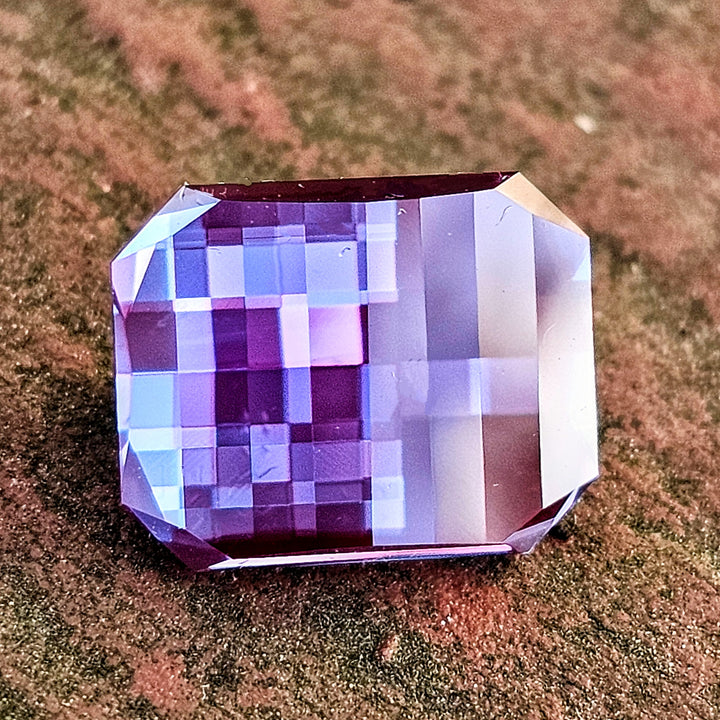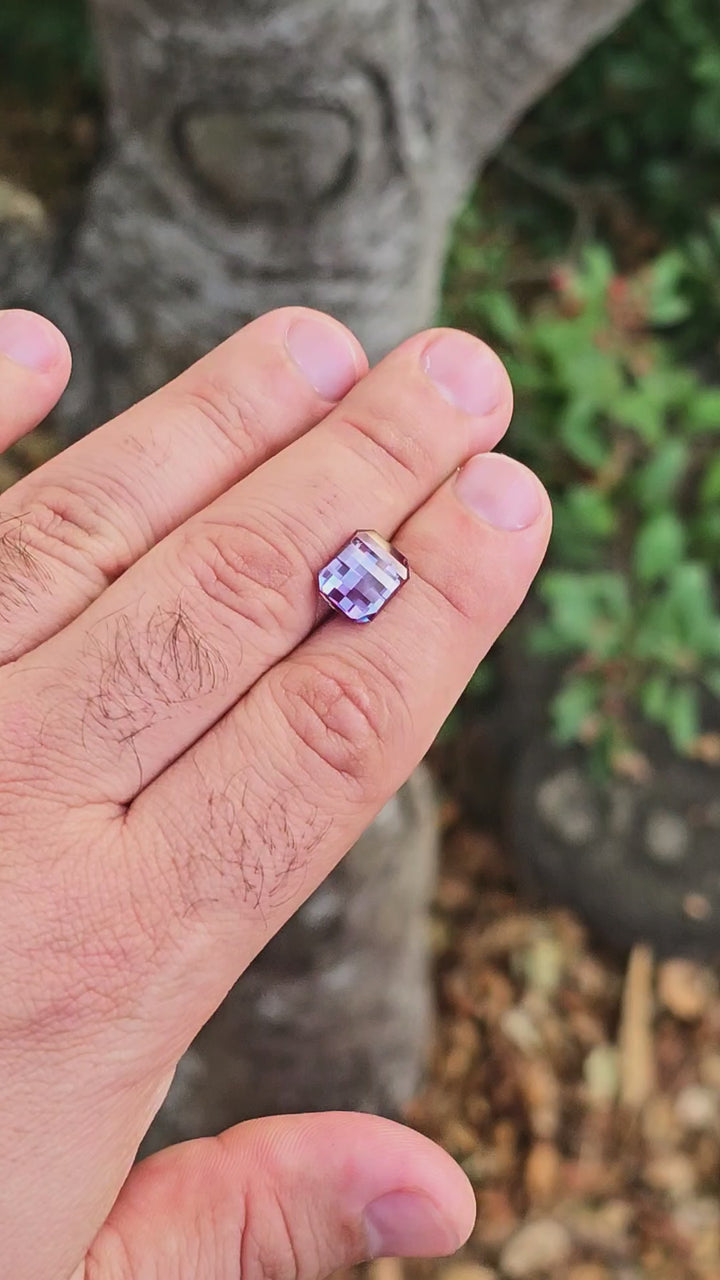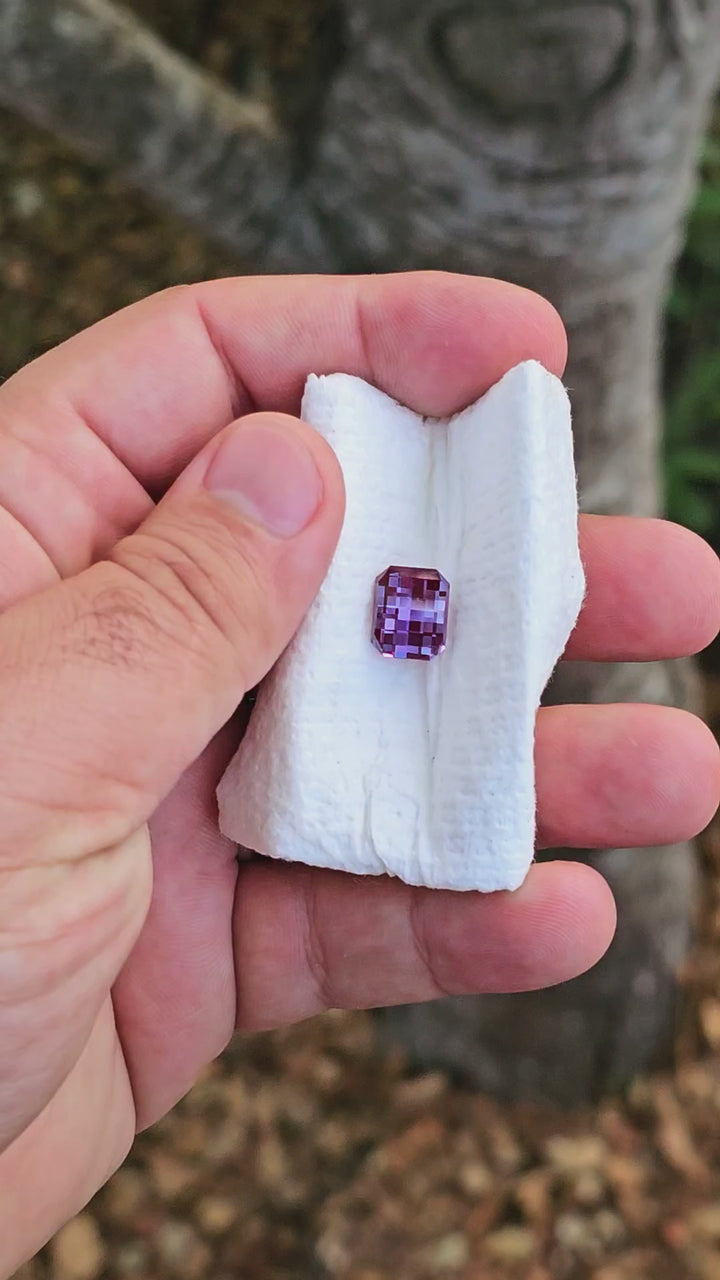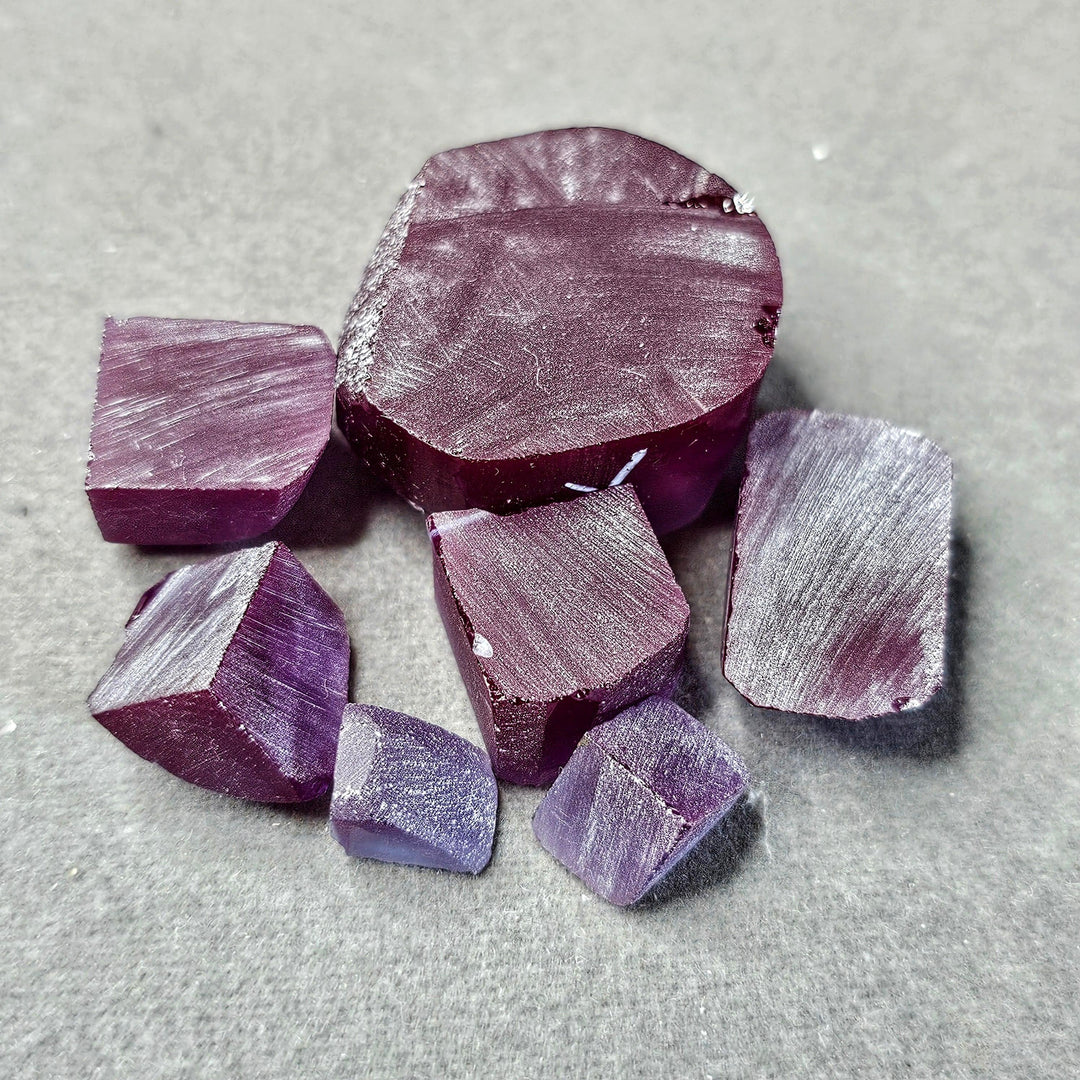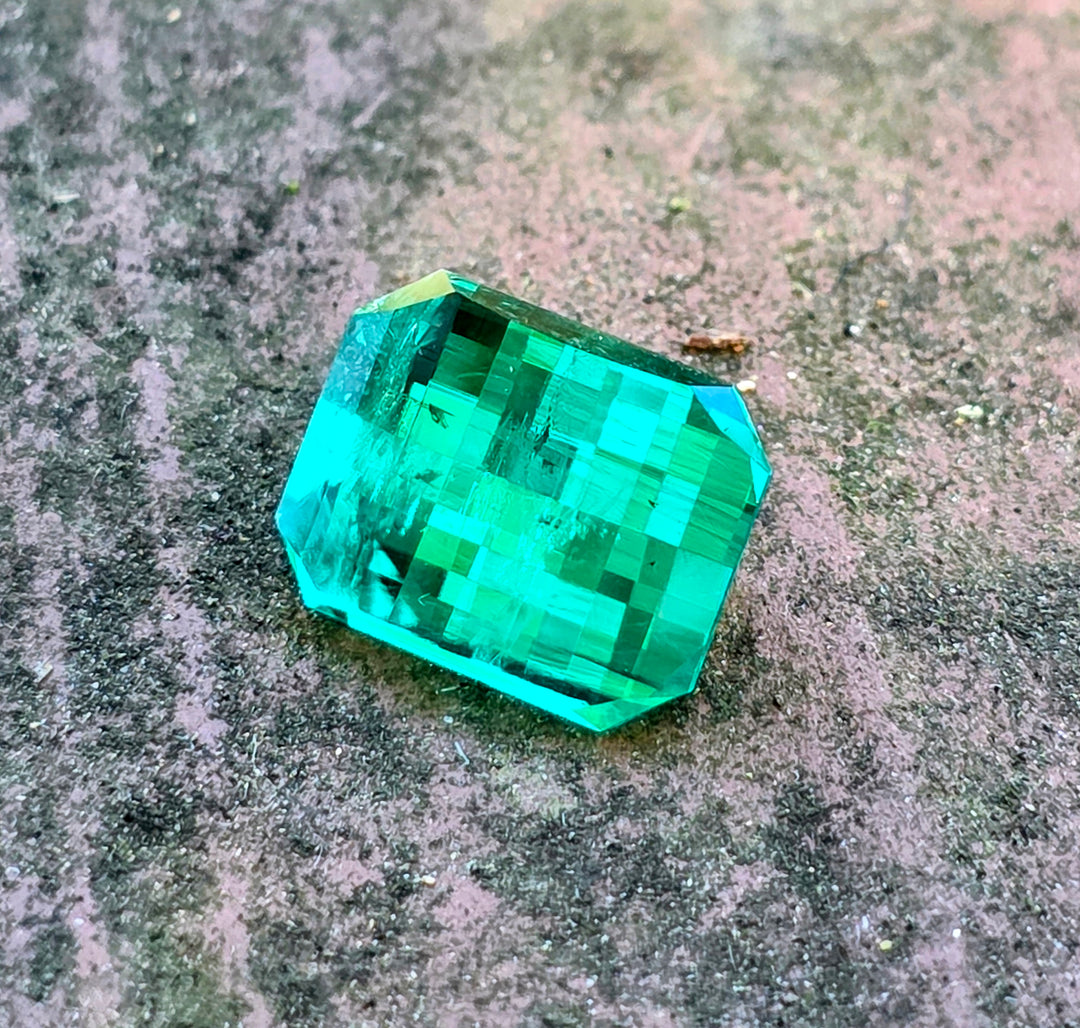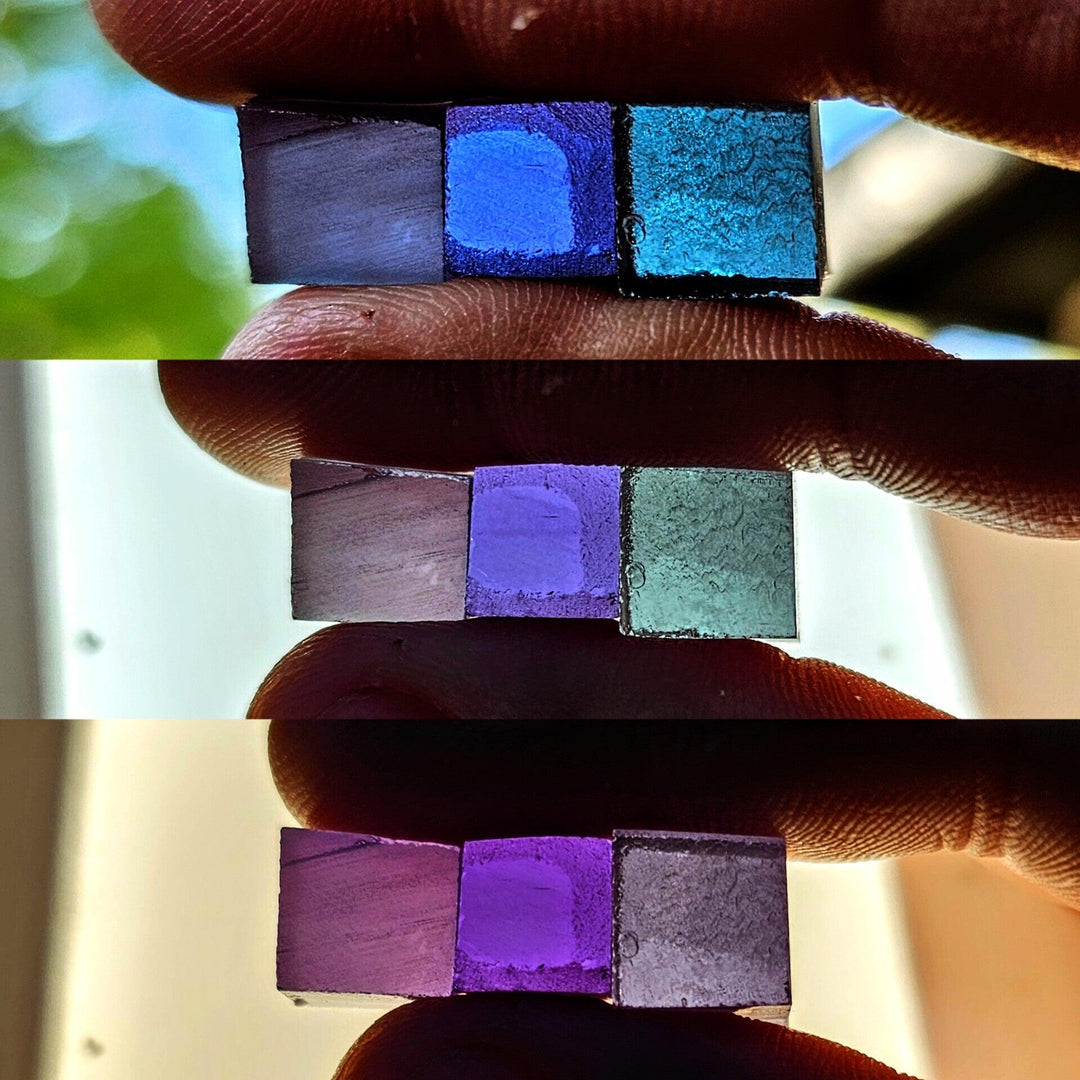🌍 GENERAL MATERIAL DESCRIPTION
- Material Name:CZ Alex
- Country of Origin : Thailand
- Growth Method: Czochralski
🏭 SPECIFIC Lot INFORMATION
Recently viewed
You may also like
🧠 Gemology Literature
The articles cited here about lab created gemstones are all open source and chronologically sorted for quick and easy access. Each article comes from either the Journal of Gemmology (JofG) or Gems and Gemmology (G&G) archives.
- 1934: Naturally Occuring Vs Synthetic Gems (G&G)
- 1944: American-made Synthetic Crystals (G&G)
- 1946: Identification of Synthetic Gems, Part I (G&G)
- 1947: Identification of Synthetic Gems, Part II (G&G)
- 1947: Identification of Synthetic Gems, Part III (G&G)
- 1949: American Snthetic Crystals - Sapphire to Titania (G&G)
- 1974: Natural, Treated, Synthetic And Imitation Gems (G&G)
- 1960: Synthetic or Artificial (JoG)
- 1969: Three Synthetics For the Record (JoG)
- 1970: Modern Synthetic Gemstones (JoG)
- 1976: On the Naming of New Man-Made Crystals (G&G)
- 1976: How to Define Non-Single Crystal Synthetics (G&G)
- 1979: Synthetic Gemstone Developments in the 1970's (G&G)
- 1979: New Forms of Synthetic Gem Materials: Two Brief Notes (JoG)
- 1983: Synthetic Manufacturers: Some Help, Some Hinder (G&G)
- 1983: Carroll Chatham, 1914-1983 (G&G)
- 1987: What IS a Synthetic? (G&G)
- 1990: Synthetic Gem Materials in the 1980's (G&G)
- 1991: Part 1: The microscope determination of structural properties for the characterization of optical uniaxial natural and synthetic gemstones (JoG)
- 1992: Part 2: The microscopic determination of structural properties for the characterization of optical uniaxial natural and synthetic gemstones. Examples for the applicability of structural features for the distinction of natural emerald from flux-grown and hydrothermally grown synthetic emerald (JoG)
- 1991: Part 3 The microscopic determination of structural properties for the characterization of optical uniaxial natural and synthetic gemstones. Examples for the applicability of structural features for the distinction of natural and synthetic sapphire, ruby, amethyst and citrine (JoG)
- 1997: The Chronology of Synthetic Gemstones (JoG)
- 2000: Synthetic Gem Materials and Simulants in the 1990's (G&G)
- 2010: Synthetic Gem Materials in the 2000's: A Decade in Review (G&G)
- 2022: Cryal Growth History: Theory and Melt Growth Process (Journal of Crystal Growth)
- GIA: An Introduction to Simulants or Imitation Gem Materials (GIA)
- GIA: An Introduction to Synthetic Gem Materials (GIA)
- 1935: Synthetic Beryl (G&G)
- 1936: Confirms G.I.A. Synthetic Emerald Research (G&G)
- 1937: New Synthetic Emerald Developments (G&G)
- 1938: The Detection of Synthetic Emeralds (G&G)
- 1941: Synthetic Emeralds on U.S. Markets (G&G)
- 1941: The Synthetic Emerald (G&G)
- 1942: Synthetic Emeralds Appear Commercially in Small Quantities (G&G)
- 1946: Improvements in Quality in Synthetic Emeralds (G&G)
- 1955: The Emerald (JoG)
- 1958: Synthetic Emerald (JoG)
- 1960: A New Emerald Substitute (G&G)
- 1960: More Light on Beryls and Rubies with Synthetic Overgrowth (G&G)
- 1961: Hydrothermal Rubies and Emerald-Coated Beryl (JoG)
- 1963: New-Type Inclusions in Chatham Synthetics (JoG)
- 1964: Developments in the Synthetic-Emerald Field (G&G)
- 1965: New Hydrothermal Emerald (G&G)
- 1965: The Gilson Synthetic Emerald Process (JoG)
- 1965: A New Hydrothermal Synthetic Emerald (JoG)
- 1966: Linde Synthetic Emerald (JoG)
- 1967: Synthetic Vanadium Emerald (JoG)
- 1967: Synthetic Cobalt Beryl (JoG)
- 1968: Another Lechleitner-Made Synthetic Emerald (JoG)
- 1969: New Nonfluorescent High-Property Synthetic Emeralds (G&G)
- 1978: Did Professor Nacken Ever Grow Hydrothermal Emeralds? (JoG)
- 1981: The Chromium Content of Lechleitner Synthetic Emerald Overgrowth (G&G)
- 1981: Japanese Synthetic Emeralds (JoG)
- 1985: Russian Flux Grown Synthetic Emeralds (G&G)
- 1985: Biron Hydrothermal Synthetic Emerald (G&G)
- 1986: Seiko Synthetic Emerald (JoG)
- 1987: The Lennix Synthetic Emerald (G&G)
- 1988: Characterization of Russian hydrothermally-grown synthetic emeralds (JoG)
- 1990: "Emeraldolite": A New Synthetic Emerald Overgrowth On Natural Beryl (G&G)
- 1990: Hydrothermally Grown Synthetic Aquamarine Manufactured in Novosibirsk, USSR (G&G)
- 1990: Two remarkable Lechleitner synthetic emeralds (JoG)
- 1991: Examples for the applicability of structural features for the distniction of natural emerald from flux-grown and hydrothermally-grown synthetic emerald (G&G)
- 1993: Hydrothermal Synthetic Emeralds From Australia: Emeralds and Pink Beryls (Gemmology)
- 1995: Russian hydrothermal synthetic emeralds: characterization of the inclusions (JoG)
- 1996: Gemological Investigation of A New Type of Russian Hydrothermal Synthetic Emerald (G&G)
- 1996: Growth Method and Growth-Related Properties of a New Type of Russian Hydrothermal Synthetic Emerald (G&G)
- 1997: Characterization of Chinese Hydrotherm Synthetic Emeralds (G&G)
- 1997: The identity of reddish-brown inclusions in a new type of Russian hydrothermal synthetic emerald (JoG)
- 1997: Inclusions in synthetic rubies and synthetic sapphires produced by hydrothermal methods (TAIRUS, Novosibirsk, Russia) (JoG)
- 1999: Synthetic Red Beryl from Russia (JoG)
- 2000: Characterization of a group of experimental Russian hydrothermal synthetic sapphires (JoG)
- 2001: Hydrothermal Synthetic Red Beryl from the Institute of Crystallography, Moscow (G&G)
- 2001: Hydrothermal Synthetic Red Beryl from the Institute of Crystallography, Moscow (G&G)
- 2003: Natural versus hydrothermal synthetic Russian 291 red beryl: chemical composition and spectroscopic measurements (JoG)
- 2004: The nature of channel constituents in hydrothermal 215 synthetic emerald (JoG)
- 2005: Characterization of the New Malossi Hydrothermal Synthetic Emerald (G&G)
- 2006: A new type of Tairus hydrothermallygrown synthetic emerald, coloured by vanadium and copper (JoG)
- 2016: Synthetic Emeralds Grown by Richard Nacken in the Mid-1920's (G&G)
- 2016: Synthetic Emeralds Grown by IG Farben: Historical Development and Properties Related to Growth Technology (JoG)
- 2017: Synthetic Emeralds Grown by W. Zerfass: Historical Account, Growth Technologies and Properties (JoG)
- 2018: Gilson Cat's-Eye Synthetic Emerald (G&G)
- 1937: Unusual Inclusions in Synthetic Rubies (G&G)
- 1942: New European Synthetics (G&G)
- 1947: Synthetic Corundum (JoG)
- 1947: Synthetic Sapphire and Spinel Production in Germany (JoG)
- 1948: Synthetic Star Sapphires (JoG)
- 1949: Reconstructed Rubies (G&G)
- 1952: "Reconstructed Rubies" found to be Synthetic (G&G)
- 1953: "Reconstructed Rubies" found to be Synthetic Corundum (JoG)
- 1957: Structures and Inclusions of Synthetic Star-stones (JoG)
- 1966: Hydrothermal Ruby (JoG)
- 1977: A Study of Recent Chatham Synthetic ruby and Synthetic Blue Sapphire Crystals with a View to the Idenfitication of Possible Faceted Material (JoG)
- 1982: The Gemological Properties of Chatham Flux-Grown Synthetic Orange Sapphire and Synthetic Blue Sapphire (G&G)
- 1982: New Synthetic Rubies Made By Professor P.O. Knishka (G&G)
- 1982: The Gemological Properties of Chatham Flux-Grown Synthetic Orange Sapphire and Synthetic Blue Sapphire (G&G)
- 1982: Distinction of Natural and Synthetic Rubies by Ultraviolet Spectrophotometry (JoG)
- 1983: Identification of the New Synthetic and Treated Sapphires (JoG)
- 1983: Synthetic Ruby made by Knischka (JoG)
- 1983: The Ramaura Synthetic Ruby (G&G)
- 1984: 'Ramura' - A new Synthetic Ruby made in the U.S.A. (JoG)
- 1985: New Lechleitner Synthetic Ruby and Synthetic Blue Sapphire (G&G)
- 1985: Identification Characteristics of Flux Grown Synthetic Orange Sapphires (JoG)
- 1985: Some Aspects of Identification of Kashan Synthetic Rubies (JoG)
- 1985: Polysynthetic Twin Lamellae in Synthetic Verneuil Sapphire (JoG)
- 1985: Gemmological Properties of Synthetic Corundums Coated by Lechleitner (JoG)
- 1987: On Twinning in Natural and Synthetic Flux-Grown Ruby (JoG)
- 1988: A Gemological Look at Kyoceras New Synthetic Star Ruby (G&G)
- 1988: Lechleither synthetic rubies with natural seed and synthetic overgrowth (JoG)
- 1992: Radioactive glass imitation emeralds and an unusual Verneuil synthetic ruby (JoG)
- 1993 Flux-Grown Synthetic Rubies from Russia (JoG)
- 1993: A new Type of Synthetic Ruby on the Market: Offered as Hydrothermal Rubies from Novosibirsk (The Australian Gemologist)
- 1994: An examination of Chatham flux-grown synthetic pink sapphires (JoG)
- 1994: Flux-Induced Figerprint Patterns In Synthetic Ruby (G&G)
- 1994: Flux-Induced Fingerprint Patterns In Synthetic Ruby: An Update (G&G)
- 1994: Synthetic Rubies by Douros: A New Challenge for Gemologists (G&G)
- 1995: "Ti-Sapphire" Czochralski-Pulled Synthetic Pink Sapphire from Union Carbide (G&G)
- 1997: Tairus Hydrothermal Synthetic Sapphires Doped with Nickel and Chromium (G&G)
- 1997: Inclusions in synthetic rubies and synthetic sapphires produced by hydrothermal methods (Tairus, Novosibirsk, Russia) (JoG)
- 1998: Separating Natural and Synthetic Rubies on the Basis of Trace-Element Chemistry (G&G)
- 1999: Some Diagnostic Features of Russian Hydrothermal Synthetic Rubies and Sapphires (G&G)
- 1999: The Separation of Natural From Synthetic Colorless Sapphire (G&G)
- 2002: A comparison between a flux grown synthetic ruby and an untreated natural ruby (JoG)
- 2002: Verneuil synthetic sapphire showing an iron absorption spectrum (JoG)
- 2003: A Verneuil synthetic ruby showing diverse veil-like 'fingerprints' (JoG)
- 2007: The causes of Colour Variations in Kashan Synthetic Rubies (JoG)
- 2010: New data for distinguishing between Hydrothermal Synthetic, Flux Synthetic, and Natural Corundum (JoG)
- 2014: Creating Corundum: The Production of Synthetic Star Rubies and sapphires (JoG)
- 2017: Accurate Reporting of Key Trace Elements in Ruby and Sapphire using Matrix-Matched Standards (G&G)
- 2017: Synthetic Star Sapphires and Rubies Produced by Wiede's Carbidwerk, Freyung, Germany (G&G)
- 2019: Paraíba-Like Synthetic Sapphire (G&G)
- 2020: Rediscovering Created Ruby: Part I (Lustre Gemmology)
- 2020: A Quantitative Description of The Causes of Color in Corundum (G&G)
- 1975: Synthetic Crystal and Method of Making SAME (G&G)
- 1980: Synthetic Single Crystal For Alexandrite Gem (G&G)
- 1987: Inamori Synthetic Cat's-Eye Alexandrite (G&G)
- 1988: The Distinction of Natural from Synthetic Alexandrite by Infrared Spectroscopy (G&G)
- 1988: Alexandrite: Natural or Synthetic? (JoG)
- 1996: Russian Flux-Grown Synthetic Alexandrite (G&G)
- 1997: Russian Flux-Grown Synthetic Alexandrite (G&G)
- 1999: Druses of synthetic alexandrite and synthetic 447 phenakite from Russia (JoG)
- 2012: Flux-grown synthetic alexandrites from Creative Crystals Inc. (JoG)
- 2013: Synthetic alexandrites grown by the HOC method in Russia: internal features related to the growth technique and colorimetric investigation (JoG)
- 2013: Natural and synthetic vanadium-bearing chrysoberyl (JoG)
- 1935: "Synthetic Diamonds" (G&G)
- 1943: Notes on Identification of Synthetic Spinel (G&G)
- 1950: Are Synthetic Red Spinels Available? (G&G)
- 1953: Synthetic Red Spinel, Further Observations on (G&G)
- 1955: Notes on the Occurrence of Two-Phase Inclusions in Synthetic Spine (JoG)
- 1956: Further Notes on Synthetic Red Spinels (JoG)
- 1958: Synthetic Moonstone-Coloured Spinel (JoG)
- 1984: "Cobalt-Blue" Gem spinels (G&G)
- 1993: Flux-Grown Synthetic Red and Blue Spinels from Russia (G&G)
- 2015: GRS Alert: A new type of Synthetic Spinel appears at the Bangkok Show (GRS)
- 1950: Laboratory Synthesis of True Quartz Crystals (G&G)
- 1950: Improvements in the Production of Synthetic Quartz (JoG)
- 1973: Synthetic Quartz from the United States (JoG)
- 1984: Hydrothermal Growth: the First Historical Achievement by Giorgio Speciz on Quartz (JoG)
- 1986: A Simple Procedure to Seperate Natural from Synthetic Amethyst on the Basis (G&G)
- 1987: New Investigations of Synthetic Amethyst produced in Japan (JoG)
- 1989: Methods for the distinction of natural and synthetic citrine and prasiolite (JoG)
- 1998 Russian Synthetic Pink Quartz (G&G)
- 1999: Russian Synthetic Ametrine (G&G)
- 2017: Distinction of Natural and Synthetic Ametrine by Microscope Examination - A practical Approach (JoG)
- 1975: Notes on Synthetic Precious Opal (JoG)
- 1976: Notes on Gilson Synthetic White Opal (JoG)
- 1978: Plastic Impregnated Gem Opal (G&G)
- 1984: An Investigation of the Synthetic Products of Gilson Showing a Play of Colors (JoG)
- 1987: Synthetic or Imitation? An investigation of the Products of Kyocera Corporation That Show Play-of-Color (G&G)
- 1988: Synthetic Opal (JoG)
- 1989: "Opalite": Plastic Imitation Opal with True Play-of-Color (G&G)
- 2008: A New Type of Synthetic Fire Opal (G&G)
- 2010: Update on Mexifire Synthetic Fire Opal (G&G)
- 2018: A New Plastic Imitation Opal From Kyocera (G&G)
- 2019: Imitation Opal with Interesting Play-of-Color Pattern (G&G)
- 1967: Another new Synthetic (JoG) (Interesting Story About YAG)
- 1971: Synthesis of Fluorite (JoG)
- 1987: A study of the General Electric Synthetic Jadeite (G&G)
- 1974: G.G.G. - A new Man-Made Stone with a Garnet-Type Structure (JoG)
- 1994: Synthetic Forsterite and Synthetic Peridot (G&G)
- 1996: Some Tanzanite Imitation (G&G)
- 2020: Reversible Twinning in Neodymium Pentaphosphate (G&G)
